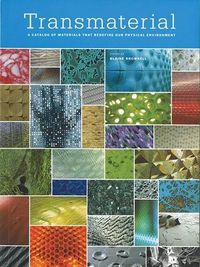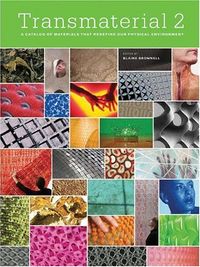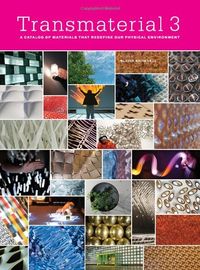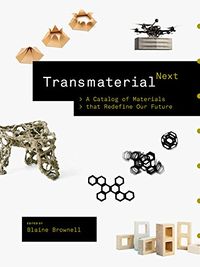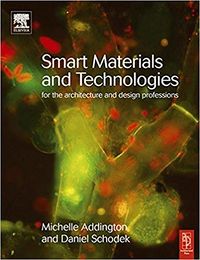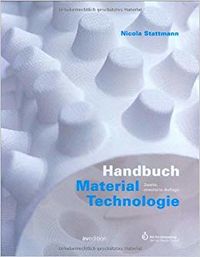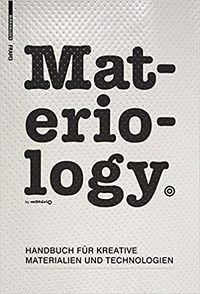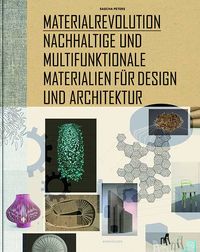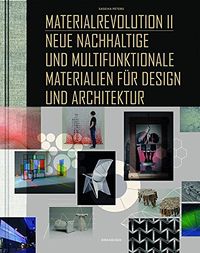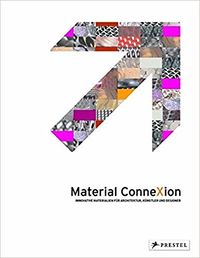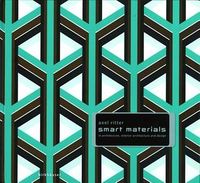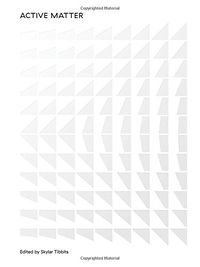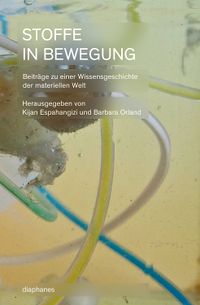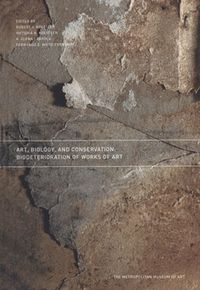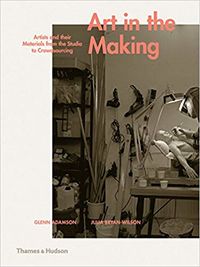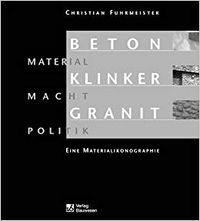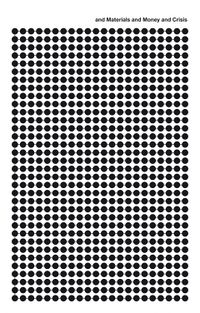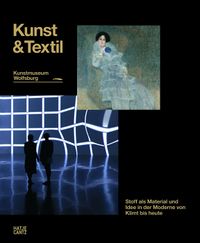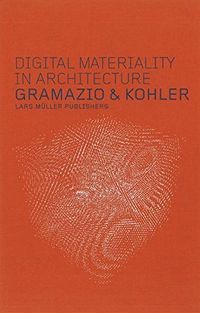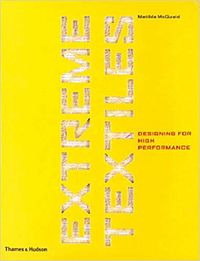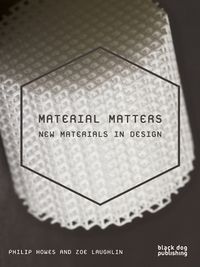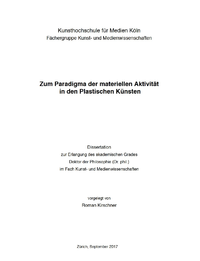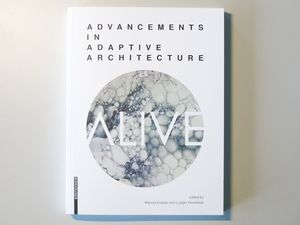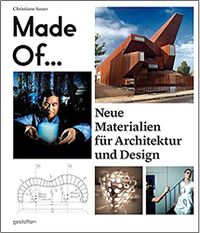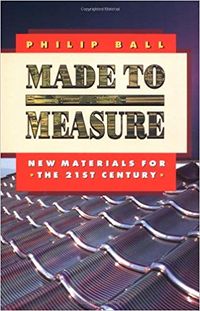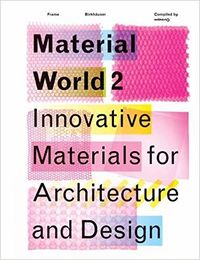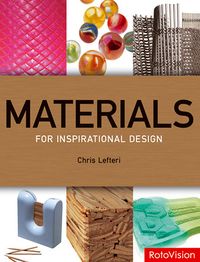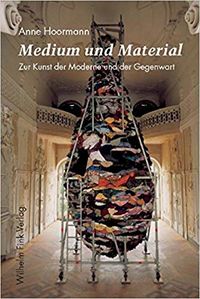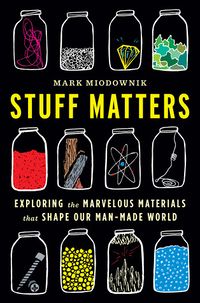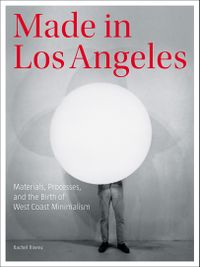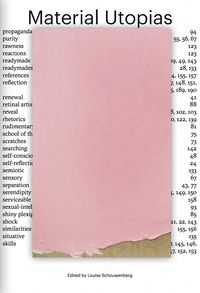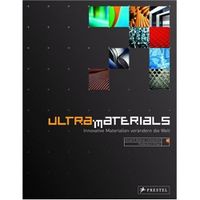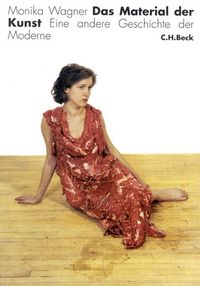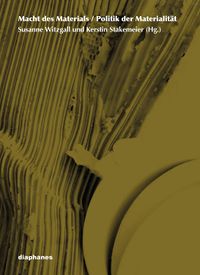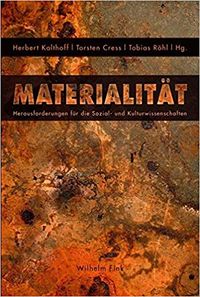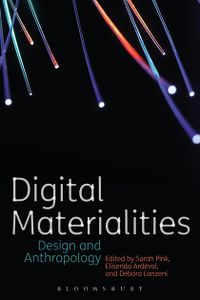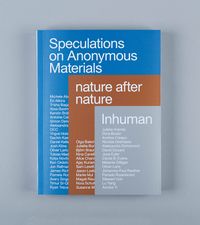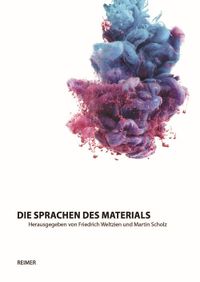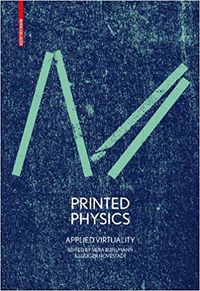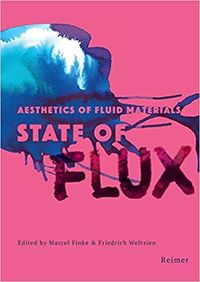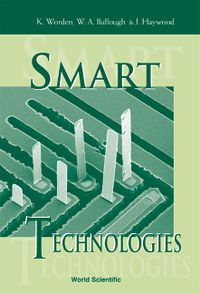Materiathek Bücher: Unterschied zwischen den Versionen
Aus exmediawiki
Karin (Diskussion | Beiträge) |
|||
| (65 dazwischenliegende Versionen von einem anderen Benutzer werden nicht angezeigt) | |||
| Zeile 1: | Zeile 1: | ||
| − | + | back to [[Materiathek Home|Home]] | [[Literature & Sources]] | |
| + | ---- | ||
| + | |||
| + | == [[Transmaterial]] == | ||
| + | A Catalogue of Materials That Redefine Our Physical Environment | ||
| + | 1, 2, 3 & Next | ||
| + | |||
| + | [[Datei:Materiathek_Cover_Transmaterial1.jpg|200px|miniatur]] | ||
| + | [[Datei:Materiathek_Cover_Transmaterial2.jpg|200px|miniatur]] | ||
| + | [[Datei:Materiathek_Cover_Transmaterial3.jpg|200px|miniatur]] | ||
| + | [[Datei:Materiathek_Cover_TransmaterialNext.jpg|200px|miniatur]] | ||
| + | |||
| + | |||
| + | AutorIn: Brownell, Blaine <br> | ||
| + | Jahr: 2005 <br> | ||
| + | Verlag: Princeton Architectural Press <br> | ||
| + | Signatur: KUN H.5.0 - 14,2 <br> | ||
| + | |||
| + | <small> http://bibkatalog.khm.de/F/R4Q91FNXSF8D6THM2VA1LAF2CGXRNHQUMHSS1RDLNUQLEG7L59-29990?func=full-set-set&set_number=655731&set_entry=000034&format=999 </small> | ||
| + | |||
| + | |||
| + | These days, whether you're designing a building or a toaster, a savvy knowledge of materials is increasingly critical. And keeping up with the constant flow of new materials, let alone their applications, properties, and sources, is an increasingly difficult and time-consuming task. Blaine Erickson Brownell, author of Transmaterial, known to thousands of web users for his'product of the week' email service alerting designers to new materials that are reshaping our world, has created this handy and affordable reference to the most interesting and most useful new materials now available. | ||
| + | Transmaterial is indexed in multiple ways for the sake of maximum convenience, and utilizes the new CSI Master-Format 2004 product categorization system. With more than 200 materials, organized by category, described, pictured, and annotated with technical and sourcing information, this catalogue is an essential tool for any architect or designer interested in keeping up with the rapid developments in the field of materials, looking for a source of inspiration for their designs, or just eager to get their hands on real materials in an effort to understand the incredibly innovative palette now available to us. | ||
| + | |||
| + | |||
| + | <small> https://www.amazon.de/Transmaterial-Materials-Redefine-Physical-Environment/dp/1568985630/ref=pd_sim_14_1/262-6300507-9037536?_encoding=UTF8&pd_rd_i=1568985630&pd_rd_r=a97bf7ac-9083-11e9-b6e5-8b86a3ff9521&pd_rd_w=NlTAZ&pd_rd_wg=hBiy6&pf_rd_p=b0773d2f-6335-4e3d-8bed-091e22ee3de4&pf_rd_r=FTDMSZACK6AZNG19906T&psc=1&refRID=FTDMSZACK6AZNG19906T</small> | ||
| + | |||
| + | <br> | ||
| + | <br> | ||
| + | |||
| + | |||
| + | Transmaterial 2: As the speed of technological progress continues to accelerate, innovation threatens to outpace architects' and designers' working knowledge of materials, thereby limiting their applicability. In order to stay at the cutting edge of design, a knowledge of the uses, properties, and sources of new materials is essential. A sequel to the critically acclaimed and best-selling book Transmaterial, Transmaterial 2 is a clear, concise, accessible, and carefully edited resource that provides information about the latest and most intriguing materials commercially available. | ||
| + | Based on a compilation of Blaine Brownell's 'product of the week' electronic journal, Transmaterial 2 includes more than two hundred materials and is indexed in multiple ways for maximum convenience. An excellent ideas generator, Transmaterial 2 is an indispensable tool for any architect or designer looking to keep up with the current trends in the field of materials. | ||
| + | |||
| + | <br> | ||
| + | |||
| + | <small> https://www.amazon.de/Transmaterial-Materials-Redefine-Physical-Environment/dp/1568987226/ref=pd_sim_14_1/262-6300507-9037536?_encoding=UTF8&pd_rd_i=1568987226&pd_rd_r=f00039a8-9084-11e9-b6e5-8b86a3ff9521&pd_rd_w=JD97u&pd_rd_wg=RXx99&pf_rd_p=b0773d2f-6335-4e3d-8bed-091e22ee3de4&pf_rd_r=7T9JSGZ4P2DJ3A28CRKG&psc=1&refRID=7T9JSGZ4P2DJ3A28CRKG</small> | ||
| + | |||
| + | <br> | ||
| + | |||
| + | Transmaterial 3 (2010): <small>https://www.amazon.de/Transmaterial-Materials-Redefine-Physical-Environment/dp/1568988931/ref=pd_sim_14_2/262-6300507-9037536?_encoding=UTF8&pd_rd_i=1568988931&pd_rd_r=28a39500-9085-11e9-ba0e-01c996a57009&pd_rd_w=PXJk5&pd_rd_wg=9vTYp&pf_rd_p=b0773d2f-6335-4e3d-8bed-091e22ee3de4&pf_rd_r=GB1DE63QV1TS6HQHR3BA&psc=1&refRID=GB1DE63QV1TS6HQHR3BA</small> | ||
| + | |||
| + | <br> | ||
| + | |||
| + | Transmaterial Next (2017): <small>https://www.amazon.de/Transmaterial-Materials-Redefine-Physical-Environment/dp/1568987226/ref=pd_sim_14_1/262-6300507-9037536?_encoding=UTF8&pd_rd_i=1568987226&pd_rd_r=f00039a8-9084-11e9-b6e5-8b86a3ff9521&pd_rd_w=JD97u&pd_rd_wg=RXx99&pf_rd_p=b0773d2f-6335-4e3d-8bed-091e22ee3de4&pf_rd_r=7T9JSGZ4P2DJ3A28CRKG&psc=1&refRID=7T9JSGZ4P2DJ3A28CRKG</small> | ||
| + | |||
| + | |||
| + | ---- | ||
| + | |||
| + | == [[Smart Materials and Technologies]] == | ||
| + | for the architecture and design professions<br><br> | ||
| + | |||
| + | [[Datei:Materiathek_Cover_Smart Materials and Technologies in Architecture.jpg|200px|miniatur]] | ||
| + | |||
| + | AutorIn: Addington, D. Michelle <br> | ||
| + | Jahr: 2007 <br> | ||
| + | Verlag: Elsevier <br> | ||
| + | Signatur: KUN H.5.0 - 21 <br> | ||
| + | |||
| + | <small> http://bibkatalog.khm.de/F/R4Q91FNXSF8D6THM2VA1LAF2CGXRNHQUMHSS1RDLNUQLEG7L59-51177?func=full-set-set&set_number=662352&set_entry=000025&format=999</small> | ||
| + | |||
| + | |||
| + | Today, architects and designers are beginning to look toward developments in new | ||
| + | "smart" or "intelligent" materials and technologies for solutions to long-standing problems | ||
| + | in building design. However, these new materials have so far been applied in a diverse | ||
| + | but largely idiosyncratic nature, because relatively few architects have access to | ||
| + | information about the types or properties of these new materials or technologies. | ||
| + | Two of the leading experts in this field - Addington and Schodek - have solved this | ||
| + | problem by incorporating all the relevant information of all the latest technologies | ||
| + | available to architects and designers in this one volume. They present materials by | ||
| + | describing their fundamental characteristics, and go on to identify and suggest how | ||
| + | these same characteristics can be exploited by professionals to achieve their design | ||
| + | goals. Here, the wealth of technical understanding already available in the materials | ||
| + | science and engineering literature is at last made accessible to a design audience. | ||
| + | |||
| + | |||
| + | <small> https://www.amazon.de/Materials-Technologies-Architecture-Michelle-Addington/dp/0750662255 </small> | ||
| + | |||
| + | <br> | ||
| + | ---- | ||
| + | |||
| + | |||
| + | == [[Handbuch Material Technologie]] == | ||
| + | |||
| + | [[Datei:Materiathek_Cover_Handbuch Material Technologie.jpg|200px|miniatur]] | ||
| + | |||
| + | |||
| + | AutorIn: Strattmann, Nicola <br> | ||
| + | Jahr: 2003 <br> | ||
| + | Verlag: AV Ed. <br> | ||
| + | Signatur: KUN H.5.0 - 7(2) <br> | ||
| + | |||
| + | <small> http://bibkatalog.khm.de/F/R4Q91FNXSF8D6THM2VA1LAF2CGXRNHQUMHSS1RDLNUQLEG7L59-26260?func=full-set-set&set_number=655727&set_entry=000009&format=999 </small> | ||
| + | |||
| + | |||
| + | Die Materialforschung und -technologie entwickelt sich in rasantem Tempo. In den letzten beiden Jahren gab es viele Neuentwicklungen, die Nicola Stattmann in die Neuauflage ihres Handbuchs eingearbeitet hat. | ||
| + | Das Buch präsentiert verschiedenste Materialien, mit denen Produktdesigner täglich arbeiten. Dazu gehören Naturmaterialien, die ersten Kunststoffe, intelligente Oberflächen mit High-Tech-Qualitäten u.v.a. Außerdem werden Technologien vorgestellt, mit diesen Materialien umzugehen: Blasformen von Metallen, Schweißen von Keramik etc. | ||
| + | Abschließend zeigt das Buch die Entwicklung der Werkstoff- und Technologieforschung auf - und veranschaulicht faszinierende Materialmöglichkeiten bei der zukünftigen Herstellung von Produkten. | ||
| + | |||
| + | |||
| + | <small> https://www.beck-shop.de/stattmann-handbuch-material-technologie/product/361316 </small> | ||
| + | |||
| + | ---- | ||
| + | |||
| + | |||
| + | == [[Materiology]] == | ||
| + | |||
| + | |||
| + | [[Datei:Materiathek_Cover_Materiology.jpg|200px|miniatur]] | ||
| + | |||
| + | AutorIn: MatériO <br> | ||
| + | Jahr: 2013 <br> | ||
| + | Verlag: Frame Publ. <br> | ||
| + | Signatur: KUN H.5.0 - 10 <br> | ||
| + | |||
| + | <small> http://bibkatalog.khm.de/F/R4Q91FNXSF8D6THM2VA1LAF2CGXRNHQUMHSS1RDLNUQLEG7L59-27386?func=full-set-set&set_number=655731&set_entry=000024&format=999 </small> | ||
| + | |||
| + | |||
| + | A book intended for all creative professionals who rely on materials and technologies – architects, designers, stylists, artists and the like, from students to experienced practitioners – Materiology is written in a style that conveys a wealth of information in a language that’s easy to understand. This book covers everything there is to know about materials and technologies in one single volume. Materiology’s comprehensive exploration of materials is divided into four sections: | ||
| + | |||
| + | Categories of materials: various types of wood, plastic, glass, metal, lighting, etc. | ||
| + | Catalogue of materials: 110 catalogue cards that identify various materials, from the most basic substance to the latest cutting edge innovation. | ||
| + | Processes: major methods of processing materials (e.g. injection moulding, extrusion) explained with instructive diagrams. Thinking out of the box: issue of relevance to any study of materials and technologies, such as ecology and virtual issues. Written in a style that conveys a wealth of information in a language that's easy to understand. | ||
| + | |||
| + | <small> https://materio.com </small> | ||
| + | |||
| + | ---- | ||
| + | |||
| + | |||
| + | == [[Materialrevolution]] 1&2 == | ||
| + | Nachhaltige und multifunktionale Materialien für Design und Architektur | ||
| + | |||
| + | [[Datei:Materiathek_Cover_Materialrevolution1.jpg|200px|miniatur]] | ||
| + | |||
| + | |||
| + | AutorIn: Peters, Sascha <br> | ||
| + | Jahr: 2013 <br> | ||
| + | Verlag: Birkhäuser <br> | ||
| + | Signatur: KUN H.5.0 - 25(2) <br> | ||
| + | |||
| + | <small> http://bibkatalog.khm.de/F/R4Q91FNXSF8D6THM2VA1LAF2CGXRNHQUMHSS1RDLNUQLEG7L59-27398?func=full-set-set&set_number=655731&set_entry=000028&format=999 </small> | ||
| + | |||
| + | |||
| + | Da inzwischen klar ist, dass uns viele Rohstoffe zukünftig nur noch begrenzt zur Verfügung stehen werden, wird seit einiger Zeit intensiv an Alternativen geforscht: Nachhaltigkeit ist das Gebot der Stunde und für Politik wie Industrie das Zauberwort für eine bessere Zukunft. Zudem ist das Bewusstsein für einen umweltverträglichen Umgang mit Werkstoffen und das Denken in Materialkreisläufen beim Konsumenten angekommen: Die Verwendung umweltverträglicher Materialien und Produktionsverfahren wird vom Kunden gewünscht, ja gar vorausgesetzt. | ||
| + | Designern und Architekten kommt somit eine besondere Rolle und Verantwortung zu. Denn sie sind es, die bei ihren Projekten die Auswahl über die eingesetzten Werkstoffe treffen und damit entscheidenden Einfluss auf die Nachhaltigkeit unserer Produktwelt nehmen. Gleichzeitig haben wir es mit einer Flut neuer Materialien zu tun, was besondere Kenntnisse in Bezug auf ihre Eigenschaften, den möglichen Einsatz und ihre Verarbeitung erfordert.Materialrevolution schlägt hier die Brücke von Forschung und Industrie zu den Designern und Architekten, indem es einen systematischen Überblick über die derzeit verfügbaren nachhaltigen Materialien bietet und alle relevanten Information liefert, um die Eignung und das Potential eines neuen Materials für das eigene Projekt zu beurteilen. Dabei werden sowohl natürliche und biologisch abbaubare Materialien beleuchtet, als auch Werkstoffe mit multifunktionalen Eigenschaften und Potenzialen zur Verringerung des Energieeinsatzes vorgestellt. | ||
| + | |||
| + | <small> https://www.amazon.de/Materialrevolution-Nachhaltige-multifunktionale-Materialien-Architektur/dp/3034605757 </small> | ||
| + | |||
| + | <br> | ||
| + | [[Datei:Materiathek_Cover_Materialrevolution2.jpg|200px|miniatur]] | ||
| + | |||
| + | In den letzten beiden Jahren hat sich gerade die Bedeutung nachhaltiger und intelligenter Werkstoffe für Design und Architektur enorm vergrößert. Zahlreiche neue Angebote sind auf den Markt gekommen, die eine zweite Edition des Buchs Material Revolution mit ähnlicher Gliederung, aber gänzlich neuen Materialangeboten notwendig werden lassen. Ist doch das Interesse der Designer am Wissen um die Nachhaltigkeit der neuen Materialien nach wie vor ungebrochen. Ein eigenes Kapitel informiert deshalb über Kriterien und Faktoren für nachhaltiges Produktdesign sowie über innovative Projekte, in denen Designer und Architekten mit neuen Werkstoffen und Technologien gearbeitet haben. | ||
| + | |||
| + | <small> https://www.amazon.de/Materialrevolution-Bd-nachhaltige-multifunktionale-Materialien/dp/303821454X/ref=pd_bxgy_14_2/262-6300507-9037536?_encoding=UTF8&pd_rd_i=303821454X&pd_rd_r=6f25911e-907f-11e9-90a3-ab43a1aa6bd3&pd_rd_w=wntq0&pd_rd_wg=raNpE&pf_rd_p=449f5fd6-8f81-46b7-aa57-ca96572671a1&pf_rd_r=ZPAHJ5W02VZDS73W6G17&psc=1&refRID=ZPAHJ5W02VZDS73W6G17 </small> | ||
| + | |||
| + | ---- | ||
| + | |||
| + | |||
| + | == [[Material ConneXion]] == | ||
| + | Innovative Materialien für Architekten, Künstler und Designer | ||
| + | |||
| + | [[Datei:Materiathek_Cover_Material Connexion.jpg|200px|miniatur]] | ||
| + | |||
| + | AutorIn: Beylerian, George M.; Dent, Andrew <br> | ||
| + | Jahr: 2005 <br> | ||
| + | Verlag: Prestel <br> | ||
| + | Signatur: KUN H.5.0 - 13+2 <br> | ||
| + | |||
| + | <small> http://bibkatalog.khm.de/F/R4Q91FNXSF8D6THM2VA1LAF2CGXRNHQUMHSS1RDLNUQLEG7L59-27028?func=full-set-set&set_number=655731&set_entry=000019&format=999 </small> | ||
| + | |||
| + | |||
| + | Neue Materialien spielen eine Schlüsselrolle in Architektur, Kunst und Design des 21. Jahrhunderts, die Innovationen der High-tech-Industrie bieten bisher ungeahnte kreative Möglichkeiten und eröffnen eine ganze Welt von neu komponierten, mehrfach verbundenen, manipulierbaren und bearbeitbaren Werkstoffen. "Material ConneXion" ist eine Bibliothek, die in ihren Räumen in New York, Mailand und Köln über 3000 Muster von ausgewählten neuen und innovativen Materialien und Werkstoffen besitzt. Das Buch stellt die wichtigsten Materialgruppen vor - Metalle, Glas, Keramik, Polymere, Naturmaterialien und deren Derivate, Materialien auf Kohlenstoff- und Zementbasis - und zeigt ihre Anwendungsmöglichkeiten an vielen aktuellen Beispielen. | ||
| + | |||
| + | <small> https://www.amazon.de/Material-ConneXion-Innovative-Materialien-Architekten/dp/3791334026 </small> | ||
| + | |||
| + | ---- | ||
| + | |||
| + | |||
| + | == Smart Materials == | ||
| + | in Architektur, Innenarchitektur und Design | ||
| + | |||
| + | [[Datei:Materiathek_Cover_Smart Materials.jpg|200px|miniatur]] | ||
| + | |||
| + | |||
| + | AutorIn: Ritter, Axel <br> | ||
| + | Jahr: 2007 <br> | ||
| + | Verlag: Birkhäuser <br> | ||
| + | Signatur: KUN H.5.0 - 15 <br> | ||
| + | |||
| + | <small> http://bibkatalog.khm.de/F/R4Q91FNXSF8D6THM2VA1LAF2CGXRNHQUMHSS1RDLNUQLEG7L59-29981?func=full-set-set&set_number=655731&set_entry=000031&format=999 </small> | ||
| + | |||
| + | |||
| + | The use of smart materials in architecture is a dynamic and innovative area merging research, development, and use. Smart materials, with their reversible characteristics, respond to stimuli such as light, temperature, and electrical field by changing their form, color, viscosity, etc. | ||
| + | |||
| + | One of the most fascinating developments is the advent of Phase Change Materials. These materials make it possible, for example, to develop self-acting, kinetic facades and wallpaper that changes its color and pattern based on temperature and light. | ||
| + | |||
| + | The book presents the development of these materials and also describes their use in the contexts of architecture, design, and art. It offers a systematic overview with a detailed discussion of properties, technologies, products, and projects based on twenty groups of smart materials. | ||
| + | |||
| + | |||
| + | <small> https://www.goodreads.com/book/show/17116535-smart-materials-in-architecture-interior-architecture-and-design </small> | ||
| + | |||
| + | ---- | ||
| − | + | == Active Matter == | |
| + | [[Datei:Materiathek_Cover_Active Matter.jpg|200px|miniatur]] | ||
| − | == | + | |
| + | AutorIn: Skylar Tibbits <br> | ||
| + | Jahr: 2017 <br> | ||
| + | Verlag: MIT Press <br> | ||
| + | Signatur: KUN H.6.0 - 18 <br> | ||
| + | |||
| + | <small> http://bibkatalog.khm.de/F/R4Q91FNXSF8D6THM2VA1LAF2CGXRNHQUMHSS1RDLNUQLEG7L59-29987?func=full-set-set&set_number=655731&set_entry=000033&format=999</small> | ||
| + | |||
| + | |||
| + | The first book on active matter, an emerging field focused on programming physical materials to assemble themselves, transform autonomously, and react to information. | ||
| + | The past few decades brought a revolution in computer software and hardware; today we are on the cusp of a materials revolution. If yesterday we programmed computers and other machines, today we program matter itself. This has created new capabilities in design, computing, and fabrication, which allow us to program proteins and bacteria, to generate self-transforming wood products and architectural details, and to create clothing from intelligent textiles that grow themselves. This book offers essays and sample projects from the front lines of the emerging field of active matter. | ||
| + | Active matter and programmable materials are at the intersection of science, art, design, and engineering, with applications in fields from biology and computer science to architecture and fashion. These essays contextualize current work and explore recent research. Sample projects, generously illustrated in color, show the range of possibilities envisioned by their makers. Contributors explore the design of active material at scales from nano to micro, kilo, and even planetary. They investigate processes of self-assembly at a microscopic level; test new materials that can sense and actuate themselves; and examine the potential of active matter in the built environment and in living and artificial systems. Active Matter is an essential guide to a field that could shape the future of design. | ||
| + | |||
| + | <small> https://www.amazon.de/Active-Matter-Press-Skylar-Tibbits/dp/0262036800 </small> | ||
| + | |||
| + | ---- | ||
| + | |||
| + | == Stoffe in Bewegung == | ||
Beiträge zur einer Wissensgeschichte der materiellen Welt | Beiträge zur einer Wissensgeschichte der materiellen Welt | ||
| Zeile 150: | Zeile 369: | ||
---- | ---- | ||
| − | == | + | == Digital Materiality in Architecture == |
[[Datei:Materiathek_Cover_Digital Materiality in Architecture.jpg|200px|miniatur]] | [[Datei:Materiathek_Cover_Digital Materiality in Architecture.jpg|200px|miniatur]] | ||
| Zeile 176: | Zeile 395: | ||
---- | ---- | ||
| − | == [[ | + | == Extreme Textiles == |
| − | + | Designing for High Performance | |
| + | |||
| + | [[Datei:Materiathek_Cover_Extreme Textiles.jpg|200px|miniatur]] | ||
| + | |||
| + | |||
| + | AutorIn: MacQuaid, Matilda; Beesley, Philip <br> | ||
| + | Jahr: 2005 <br> | ||
| + | Verlag: Thames & Hudson <br> | ||
| + | Signatur: KUN H.5.4 - 38 <br> | ||
| + | |||
| + | <small> http://bibkatalog.khm.de/F/R4Q91FNXSF8D6THM2VA1LAF2CGXRNHQUMHSS1RDLNUQLEG7L59-26010?func=full-set-set&set_number=655718&set_entry=000010&format=999 </small> | ||
| + | |||
| + | |||
| + | Stronger, faster, lighter, safer, smarterthese are the textiles of tomorrow. From the carbon-fiber composite bicycle frame to the cardiac constraint sock and the Mars Pathfinder landing airbags, material innovations surround us. Our landscape, our buildings, our vehicles, our clothes, and our bodies all benefit from these highly engineered performance textiles. Featuring examples of fully realized products from all classes of technical textilesarchitectural, product design, apparel, medicine, transportation, aerospace, industry, and the environmentExtreme Textiles highlights successful collaborations between design, industry, and science. Large, full-color illustrations and essays by some of today's most influential designers and scientists trace the extraordinary developments made in textiles over the last twenty years and suggest what is to come. | ||
| + | |||
| + | Tradition, technology, beauty, and strength are joined together in the materials and products presented in this volume. Whether exploring space, running a marathon, or fashioning the latest trend, we will be inspired by these extreme textiles every day. | ||
| + | |||
| + | Extreme Textiles accompanies the exhibition of the same name at the Cooper-Hewitt, National Design Museum beginning in April 2005. | ||
| + | |||
| + | |||
| + | <small> https://www.goodreads.com/book/show/57592.Extreme_Textiles </small> | ||
| + | |||
| + | ---- | ||
| + | |||
| + | == Material Matters == | ||
| + | New Material in Design | ||
| + | |||
| + | [[Datei:Materiathek_Cover_Material Matters.jpg|200px|miniatur]] | ||
| + | |||
| + | |||
| + | AutorIn: Howes, Phil; Laughlin, Zoe <br> | ||
| + | Jahr: 2012 <br> | ||
| + | Verlag: Black Dog Publ. <br> | ||
| + | Signatur: KUN H.5.0 - 32 <br> | ||
| + | |||
| + | <small> http://bibkatalog.khm.de/F/R4Q91FNXSF8D6THM2VA1LAF2CGXRNHQUMHSS1RDLNUQLEG7L59-26263?func=full-set-set&set_number=655727&set_entry=000010&format=999 </small> | ||
| + | |||
| + | |||
| + | Material Matters: New Materials in Design explores the fascinating world of materials, surveying characteristics, properties and new applications of materials in diverse fields, from sustainable resources to medicine, architectural design to aeronautical engineering and interior design to ‘haute-culture’ and fashion. | ||
| + | |||
| + | Material Matters profiles the most fascinating materials developed in recent years with full page profiles and colorful illustrations, examples include Aerogel or ‘frozen smoke’—used by NASA it is the lightest solid on earth at 95% air. Amongst the detailed profiles are texts that discuss the fusion between science, art and design in the creation of these substances and their importance within contemporary living, sustainability and expanding technologies. The book also includes the work of cutting edge designers Marc Newson, Ross Lovegrove, Apple, NASA, Intel, Ron Arad and household names. | ||
| + | |||
| + | <small> https://www.goodreads.com/book/show/13236241-material-matters </small> | ||
| + | <br><br> | ||
| + | |||
| + | Blogeintrag theartbookreview: Material Matters divides itself along the lines of glass, metal, polymers, ceramics, composites, and the bewitching “futures.” Pithy text enumerates properties, applications, and further information for each material, catalogue-like, though the true appeal lies in the accompanying images. The images are large and enticing, and often produce the material in both its micro- and macroscopic dimensions. | ||
| + | |||
| + | Liquid plastic infused with magnetic iron filings and shaped as it cools finds a fungal, architectural form, and a close-up of the same presents a serrated and almost lunar terrain. Unfired ceramics are magnified until they take on somatic contours, and make me blush. The smudgy, chilly blue of aerogel has an astral appearance that mirrors its purpose: to capture and store stardust, tiny flecks of cosmic detritus. | ||
| + | |||
| + | And more: outsize faceted glass crystals; cobwebby aerosolized fabric; eerie silhouettes behind transparent concrete; nuclear waste rendered an iridescent, amber-colored glass candy by way of vitrification. The materials edge into the sinister on occasion, as with soft circuits, flexible electronic patches that adhere to the skin. The circuits resemble a perverse hybrid between wiry hair and decorative gold, a space-age filigree with capacity for surveillance. Despite the dystopian implications, I am still intrigued—I would like to know the sensation of a soft circuit on my forearm, to see what information it transmits. | ||
| + | |||
| + | <small> https://theartbookreview.org/2012/12/21/material-matters-new-materials-in-design/ </small> | ||
| + | |||
| + | ---- | ||
| + | |||
| + | == Zum Paradigma der materiellen Aktivität in den Plastischen Künsten == | ||
| + | |||
| + | |||
| + | [[Datei:Materiathek_Cover_Zum Paradigma der materiellen Aktivität.png|200px|miniatur]] | ||
| + | |||
| + | |||
| + | AutorIn: Kirschner, Roman <br> | ||
| + | Jahr: 2017 <br> | ||
| + | Verlag: Dissertation KHM <br> | ||
| + | Signatur: KHM DISS 8, KHM DISS 8+2 <br> | ||
| + | |||
| + | <small> http://bibkatalog.khm.de/F/R4Q91FNXSF8D6THM2VA1LAF2CGXRNHQUMHSS1RDLNUQLEG7L59-27006?func=full-set-set&set_number=655731&set_entry=000012&format=999 </small> <br> | ||
| + | <small> Volltext: : https://e-publications.khm.de/frontdoor/deliver/index/docId/172/file/Dissertation-Kirschner.pdf </small> | ||
| + | |||
| + | |||
| + | Einleitung: Stoffe können aktiv sein. Sie können etwas tun. Sie können auf den ersten Blick je nachBeschaffenheit etwa fliessen, still halten, ihre Zustände wechseln, sich verwandeln,pulverisieren, sich zersetzen, sich auflösen, sich absetzen, sich formen, Strahlungenabsorbieren, Energie übertragen und vieles mehr. Auf den zweiten Blick können sie darüberhinaus in Austausch treten, mit anderen Stoffen agieren, Verbindungen eingehen oder inneuen Verbindungen aufgehen, die Umwandlung anderer Stoffe auslösen und so weiter.Dieser zweite Blick schließt auch die weitere Umgebung, die konkrete Situation undverschiedene Zeitrahmen mit ein, in denen ihr individuelles Entstehen, Werden und Agierenverständlicher wird. Weiters können Stoffe in dynamischen Stoffsystemen undStoffwechselprozessen in eine Vielzahl unvorhersehbarer Konfigurationen gebracht werden,die das Repertoire der Plastischen Kunst aber auch die Anforderungen an jene Personen, diein ihr agieren, beträchtlich erweitern. Stoffe sind demnach nicht einfach starr oder nurpassiv. | ||
| + | |||
| + | <small> https://e-publications.khm.de/frontdoor/deliver/index/docId/172/file/Dissertation-Kirschner.pdf </small> | ||
| + | |||
| + | ---- | ||
| + | |||
| + | == Alive == | ||
| + | Advancements in Adaptive Architecture | ||
| + | |||
| + | [[Datei:Materiathek_Cover_Alive.jpg|300px|miniatur]] | ||
| + | |||
| + | |||
| + | AutorIn: Kretzner, Manuel <br> | ||
| + | Jahr: 2014 <br> | ||
| + | Verlag: Birkhäuser <br> | ||
| + | Signatur: KUN I.2 - 248 <br> | ||
| + | |||
| + | <small> http://bibkatalog.khm.de/F/R4Q91FNXSF8D6THM2VA1LAF2CGXRNHQUMHSS1RDLNUQLEG7L59-27013?func=full-set-set&set_number=655731&set_entry=000014&format=999 </small> | ||
| + | |||
| + | |||
| + | In times where the very concept of ‘nature’ is questioned not only in its philosophical dimension, but in the core of its biological materiality, we need to reconsider the interrelations between architecture and nature. This not only applies to strategies on environmental responsibility but equally on anticipatory human behavior, transient occupation and cultural or demographic variety. To address these challenges this book proposes to embrace the unknown and cultivate the architectural discipline towards an integrated, co-operative and cross-disciplinary practice that responds to natural evolution through more than formal imitation. It unravels compelling innovative and forward-thinking design narratives by leading international practitioners and researchers who investigate novel associations between architecture, nature and humanity for a future, alive architecture. Structured around the three closely cross-linked core themes “bioinspiration,” “materiability,” and “intelligence” the book engages with the starting point of an emerging new design field, where the symbiosis of physics, biology, computing and design promises the redefinition of what we call architecture today. | ||
| + | |||
| + | <small> <https://www.caad.arch.ethz.ch/blog/alive-advancements-in-adaptive-architecture/ </small> | ||
| + | |||
| + | ---- | ||
| + | |||
| + | == Made of... == | ||
| + | Neue Materialien für Architektur und Design | ||
| + | |||
| + | [[Datei:Materiathek_Cover_Made of.jpg|200px|miniatur]] | ||
| + | |||
| + | AutorIn: Sauer, Christiane <br> | ||
| + | Jahr: 2010 <br> | ||
| + | Verlag: Gestalten <br> | ||
| + | Signatur: KUN I.6 - 65 <br> | ||
| + | |||
| + | <small> http://bibkatalog.khm.de/F/R4Q91FNXSF8D6THM2VA1LAF2CGXRNHQUMHSS1RDLNUQLEG7L59-27016?func=full-set-set&set_number=655731&set_entry=000015&format=999</small> | ||
| + | |||
| + | |||
| + | Ohne Hightech-Baumaterialien wäre moderne Architektur undenkbar und unbaubar. Jetzt stellt Made of ... ein breites Spektrum an innovativen Materialien und den neuesten Baustoffen, die gerade entwickelt werden, sowie ihre Anwendungsmöglichkeiten für die Architektur von heute vor. | ||
| + | Made of ... führt Architekten an neue Ansätze für anspruchsvolle Gebäudekonzepte heran, die sich ihnen durch Hightech-Baustoffe eröffnen. In jedem Kapitel z.B. Reinforced, Glasfaser, Carbonfaser, Naturfaser, Sandwiches, Wabenstrukturen und Schäume werden die Qualitäten eines Materials genau erläutert und bewertet. Einsatzmöglichkeiten werden nicht nur in aufschlussreichen Texten erörtert, sondern anhand von Bildern aktueller Projekte verdeutlicht. | ||
| + | Derzeit steigen die Anforderungen an Gebäude stetig u.a. im Bezug auf Nachhaltigkeit, Energieeffizienz und Sicherheit sowie die Fähigkeit, soziale Aspekte zu bedienen und Verschmutzungen abzuweisen und somit die Anforderungen an Baumaterialien und die Architekten, die sie einsetzen müssen. Made of ... gibt Architekten frühzeitig inspirierende Einblicke und praktische Ratschläge, wie sie mit innovativen Werkstoffen zukunftssicher arbeiten können. | ||
| + | Die Texte stammen von der Architektin Christiane Sauer, die sich als Expertin für Baumaterial international einen Namen gemacht hat. In dieser Funktion hat sie schon beim Office for Metropolitan Architecture des Stararchitekten Rem Koolhaas gearbeitet ein Büro, das wie wohl kaum ein anderes intensive Forschung im Werkstoffbereich betreibt. Heute berät Christiane Sauer mit ihrem eigenen Unternehmen Architekturbüros aus aller Welt zum Thema Material und dessen Einsatz. | ||
| + | |||
| + | <small> https://www.amazon.de/Made-Neue-Materialien-Architektur-Design/dp/3899552938 </small> | ||
| + | |||
| + | ---- | ||
| + | |||
| + | == Made to Measure == | ||
| + | New Materials for the 21st Century | ||
| + | <br><br> | ||
| + | |||
| + | [[Datei:Materiathek_Cover_Made to measure.jpg|200px|miniatur]] | ||
| + | |||
| + | AutorIn: Ball, Phillip <br> | ||
| + | Jahr: 1999 <br> | ||
| + | Verlag: Princeton Univ. Press <br> | ||
| + | Signatur: KUN H.5.0 - 19 <br> | ||
| + | |||
| + | <small> http://bibkatalog.khm.de/F/R4Q91FNXSF8D6THM2VA1LAF2CGXRNHQUMHSS1RDLNUQLEG7L59-27019?func=full-set-set&set_number=655731&set_entry=000016&format=999</small> | ||
| + | |||
| + | |||
| + | Made to Measure introduces a general audience to one of today's most exciting areas of scientific research: materials science. Philip Ball describes how scientists are currently inventing thousands of new materials, ranging from synthetic skin, blood, and bone to substances that repair themselves and adapt to their environment, that swell and flex like muscles, that repel any ink or paint, and that capture and store the energy of the Sun. He shows how all this is being accomplished precisely because, for the first time in history, materials are being "made to measure": designed for particular applications, rather than discovered in nature or by haphazard experimentation. Now scientists literally put new materials together on the drawing board in the same way that a blueprint is specified for a house or an electronic circuit. But the designers are working not with skylights and alcoves, not with transistors and capacitors, but with molecules and atoms. | ||
| + | |||
| + | This book is written in the same engaging manner as Ball's popular book on chemistry, Designing the Molecular World, and it links insights from chemistry, biology, and physics with those from engineering as it outlines the various areas in which new materials will transform our lives in the twenty-first century. The chapters provide vignettes from a broad range of selected areas of materials science and can be read as separate essays. The subjects include photonic materials, materials for information storage, smart materials, biomaterials, biomedical materials, materials for clean energy, porous materials, diamond and hard materials, new polymers, and surfaces and interfaces. | ||
| + | Philip Ball is an associate editor for physical sciences with Nature. He contributes regular articles on all fields of science to the academic and popular press, and is the author of Designing the Molecular World (Princeton) and The Self-Made Tapestry (Oxford). | ||
| + | |||
| + | <small> https://press.princeton.edu/titles/6178.html </small> | ||
| + | |||
| + | ---- | ||
| + | |||
| + | == [[Material World 2]] == | ||
| + | Innovative Materials for Architecture and Design <br> | ||
| + | <small>Es gibt auch noch Band 1 und 3</small> | ||
| + | |||
| + | [[Datei:Materiathek_Cover_Material World 2.jpg|200px|miniatur]] | ||
| + | |||
| + | |||
| + | AutorIn: MatériO <br> | ||
| + | Jahr: 2005 <br> | ||
| + | Verlag: Prestel <br> | ||
| + | Signatur: KUN H.5.0 - 13+2 <br> | ||
| + | |||
| + | <small> </small> | ||
| + | |||
| + | |||
| + | Featuring over 150 materials, Material World 2: Innovative Materials for Architecture and Design, sequel to the highly successful Material World, will be an even more comprehensive catalogue of resources, thanks to a global arsenal of information-crammed data banks available to Frame magazine. | ||
| + | What the original volume quickly revealed is the enormous demand among architects and designers for product information, as well as for the names and addresses of suppliers of fascinating materials and finishes for use in interior design and architecture. Material World 2 promises to satisfy this demand: the reader will find not only a virtually encyclopaedic survey of materials, but also addresses, phone numbers, and websites – all the information you need to track down every item featured. The sequel to Material World is set to be another sure-fire bestseller. | ||
| + | |||
| + | |||
| + | <small> https://store.frameweb.com/frame-publishers-material-world-2.html </small> | ||
| + | |||
| + | ---- | ||
| + | |||
| + | == Materials for inspirational Design == | ||
| + | |||
| + | |||
| + | [[Datei:Materiathek_Cover_Materials for inspirational design.jpg|200px|miniatur]] | ||
| + | |||
| + | |||
| + | AutorIn: Lefteri, Chris <br> | ||
| + | Jahr: 2006 <br> | ||
| + | Verlag: Rotovision <br> | ||
| + | Signatur: KUN H.5.0 - 22 <br> | ||
| + | |||
| + | <small> http://bibkatalog.khm.de/F/R4Q91FNXSF8D6THM2VA1LAF2CGXRNHQUMHSS1RDLNUQLEG7L59-27383?func=full-set-set&set_number=655731&set_entry=000023&format=999 </small> | ||
| + | |||
| + | |||
| + | Materials for Inspirational Design provides today's designer with a myriad of material possibilities. The book introduces the properties of wood, metal, glass, ceramics and plastic, all in an informative and inspirational format. The book covers a wide range of information its inclusion of both everyday, familiar products and those that are new, exciting and unexpected. | ||
| + | |||
| + | The book is highly informative in that each application is introduced with detailed authorial comment, and numerous interviews with the designers and manufacturers are also included. The book covers a wide range of areas, exploring the application of materials in architecture, interior design, product design, furniture design, fashion and applied arts, all combined with solid technical information. | ||
| + | |||
| + | |||
| + | <small> https://www.goodreads.com/book/show/2978844-materials-for-inspirational-design </small> | ||
| + | |||
| + | ---- | ||
| + | |||
| + | |||
| + | == Medium und Material == | ||
| + | zur Kunst der Moderne und Gegenwart | ||
| + | |||
| + | [[Datei:Materiathek_Cover_Medium und Material.jpg|200px|miniatur]] | ||
| + | |||
| + | |||
| + | AutorIn: Hoormann, Anne <br> | ||
| + | Jahr: 2007 <br> | ||
| + | Verlag: Fink <br> | ||
| + | Signatur: KUN B.6.0 - 33 <br> | ||
| + | |||
| + | <small> http://bibkatalog.khm.de/F/R4Q91FNXSF8D6THM2VA1LAF2CGXRNHQUMHSS1RDLNUQLEG7L59-27389?func=full-set-set&set_number=655731&set_entry=000025&format=999 </small> | ||
| + | |||
| + | |||
| + | Die hier versammelten Aufsätze der Kunsthistorikerin Anne Hoormann (1956-2003) spüren den Ausdrucksmöglichkeiten der Kunst in der Moderne und der Gegenwart nach. Sie setzen dabei an der elementaren Frage nach dem "Womit" der Kunst an: Mit welchen Materialien und in welchen Medien arbeitet die Kunst; mit welchen Mitteln will sie ihre Wirkungen erzielen? Dabei werden das Schwerste (Erde und Stein) und das Leichteste (das Licht) im Hinblick auf ihre Bedeutung für die Kunst untersucht. Die Studien konzentrieren sich auf die deutsche und die US-amerikanische Landschaftskunst, Kunst im öffentlichen Raum und Kunst am Bau. Besonderes Augenmerk legt die Autorin auf die Übergänge von Medium und Material, so auf das Glas als lichtdurchlässige Materie und auf die Faktur von Malerei, Fotografie, Film und Video. | ||
| + | |||
| + | <small> https://www.fink.de/katalog/titel/978-3-7705-4041-9.html </small> | ||
| + | |||
| + | ---- | ||
| + | |||
| + | == Stuff Matters == | ||
| + | Exploring the Marvelous Materials That Shape Our Man-Made World | ||
| + | |||
| + | [[Datei:Materiathek_Cover_Stuff Matters.jpg|200px|miniatur]] | ||
| + | |||
| + | |||
| + | AutorIn: Mark Miodownik <br> | ||
| + | Jahr: 2014 <br> | ||
| + | Verlag: Penguin Books <br> | ||
| + | Signatur: KUN H.5.0 - 30 <br> | ||
| + | |||
| + | <small> http://bibkatalog.khm.de/F/R4Q91FNXSF8D6THM2VA1LAF2CGXRNHQUMHSS1RDLNUQLEG7L59-27392?func=full-set-set&set_number=655731&set_entry=000026&format=999 </small> | ||
| + | |||
| + | |||
| + | Why is glass see-through? What makes elastic stretchy? Why does a paper clip bend? Why does any material look and behave the way it does? These are the sorts of questions that Mark Miodownik is constantly asking himself. A globally-renowned materials scientist, Miodownik has spent his life exploring objects as ordinary as an envelope and as unexpected as concrete cloth, uncovering the fascinating secrets that hold together our physical world. | ||
| + | |||
| + | In Stuff Matters, Miodownik entertainingly examines the materials he encounters in a typical morning, from the steel in his razor and the graphite in his pencil to the foam in his sneakers and the concrete in a nearby skyscraper. He offers a compendium of the most astounding histories and marvelous scientific breakthroughs in the material world, including: | ||
| + | |||
| + | The imprisoned alchemist who saved himself from execution by creating the first European porcelain. | ||
| + | The hidden gem of the Milky Way, a planet five times the size of Earth, made entirely of diamond. | ||
| + | Graphene, the thinnest, strongest, stiffest material in existence—only a single atom thick—that could be used to make entire buildings sensitive to touch. | ||
| + | From the teacup to the jet engine, the silicon chip to the paper clip, the plastic in our appliances to the elastic in our underpants, our lives are overflowing with materials. Full of enthralling tales of the miracles of engineering that permeate our lives, Stuff Matters will make you see stuff in a whole new way. | ||
| + | |||
| + | <small> https://www.goodreads.com/book/show/18222843-stuff-matters </small> | ||
| + | |||
| + | ---- | ||
| + | |||
| + | |||
| + | == Made in Los Angeles == | ||
| + | Materials, Processes, and the Birth of West Coast Minimalism | ||
| + | |||
| + | [[Datei:Materiathek_Cover_Made in Los Angeles.jpg|200px|miniatur]] | ||
| + | |||
| + | |||
| + | AutorIn: Rivenc, Rachel <br> | ||
| + | Jahr: 2016 <br> | ||
| + | Verlag: The Getty Conservation Institute <br> | ||
| + | Signatur: KUN B.6.5 - 28 <br> | ||
| + | |||
| + | <small> http://bibkatalog.khm.de/F/R4Q91FNXSF8D6THM2VA1LAF2CGXRNHQUMHSS1RDLNUQLEG7L59-27401?func=full-set-set&set_number=655731&set_entry=000029&format=999 </small> | ||
| + | |||
| + | |||
| + | Made in Los Angeles focuses on four pioneers of West Coast Minimalism — Larry Bell, Robert Irwin, Craig Kauffman, and John McCracken — whose working methods, often borrowed from other industries, featured the use of synthetic paints and resins as well as industrial processes to create objects that are both painting and sculpture. Bell, for example, coated plate glass with films of material that alter the way the light is absorbed, reflected, and transmitted, while Kauffman employed a process usually reserved for commercial signs for his work. McCracken coated plywood with fiberglass then spray-painted it with countless layers of automotive paints, and Irwin spray-painted discs of hammered aluminum or vacuum-formed plastics. The detailed study of each artist’s work is presented in the context of the emergence of modern art in Los Angeles, the burgeoning mid-twentieth-century gallery scene, and the light-infused LA cityscape. | ||
| + | Initially undertaken as part of the Pacific Standard Time: Art in L.A.1945–1980 initiative, this volume combines technical art history and scientific analysis to investigate conservation issues associated with the work of these artists, which are often emblematic of issues in the conservation of contemporary art in general. | ||
| + | Rachel Rivenc is an associate scientist at the Getty Conservation Institute. | ||
| + | “Interviews with artists and fabricators, results from extensive analytical work, and discussion on the display and conservation of works by each artist enrich the text.” | ||
| + | —Winterthur Portfolio | ||
| + | |||
| + | |||
| + | <small> https://shop.getty.edu/products/made-in-los-angeles-materials-processes-and-the-birth-of-west-coast-minimalism-978-1606064658 </small> | ||
| + | |||
| + | ---- | ||
| + | |||
| + | == Material Utopias == | ||
| + | |||
| + | |||
| + | [[Datei:Materiathek_Cover_Material Utopias.jpg|200px|miniatur]] | ||
| + | |||
| + | |||
| + | AutorIn: Schouwenberg, Louise <br> | ||
| + | Jahr: 2017 <br> | ||
| + | Verlag: Steinberg Press <br> | ||
| + | Signatur: KUN C.1 - 283 <br> | ||
| + | |||
| + | <small> http://bibkatalog.khm.de/F/R4Q91FNXSF8D6THM2VA1LAF2CGXRNHQUMHSS1RDLNUQLEG7L59-27404?func=full-set-set&set_number=655731&set_entry=000030&format=999 </small> | ||
| + | |||
| + | |||
| + | Texts by Max Bruinsma, Amanda du Preez, Domeniek Ruyters, Louise Schouwenberg, Aaron Schuster, Tamar Shafrir | ||
| + | |||
| + | In the slipstream of conceptual art, the intimate interweaving of meaning and materialization in art and design came to be discredited in the second half of the twentieth century. The master’s program Material Utopias at the Sandberg Instituut put an end to this tradition by abolishing the unproductive hierarchy separating “concept” and “making,” “content” and “process.” In this publication, various authors reflect on the history of dematerialization and deskilling, the manifold meanings of materials in art and design, and the challenges for education when the innovative power of the artistic process is celebrated. | ||
| + | |||
| + | |||
| + | <small> http://www.sternberg-press.com/index.php?pageId=1789&l=en&bookId=682 </small> | ||
| + | |||
| + | |||
| + | ---- | ||
| + | |||
| + | |||
| + | == Ultra Materials == | ||
| + | innovative Materialien verändern die Welt | ||
| + | |||
| + | <br> | ||
| + | |||
| + | [[Datei:Materiathek_Cover_Ultra Materials.jpg|200px|miniatur]] | ||
| + | |||
| + | AutorIn: Beylerian, George M.; Dent, Andrew <br> | ||
| + | Jahr: 2007 <br> | ||
| + | Verlag: Prestell <br> | ||
| + | Signatur: KUN H.5.0 - 9 <br> | ||
| + | |||
| + | <small> http://bibkatalog.khm.de/F/R4Q91FNXSF8D6THM2VA1LAF2CGXRNHQUMHSS1RDLNUQLEG7L59-29996?func=full-set-set&set_number=655731&set_entry=000036&format=999</small> | ||
| + | |||
| + | |||
| + | Flauschige Holzplatten und leuchtende Textilien - in der weltweit größten Materialbibliothek "Material ConneXion" in New York und ihren Ablegern in Köln, Mailand und Bangkok findet man über 3.000 Muster zukunftsweisender High-Tech-Stoffe, die Inspirations- und Informationsquelle für Architekten, Designer und Künstler sind. Der Nachfolgeband von Material ConneXion stellt über 400 der innovativsten Materialien vor und zeigt anhand aktueller Beispiele von international renommierten Architekten ihre Verwendungsmöglichkeiten. | ||
| + | |||
| + | <small> https://www.amazon.de/Ultra-Materials-Neue-Materialien-ver%C3%A4ndern/dp/3791338633 </small> | ||
| + | |||
| + | ---- | ||
| + | |||
| + | == Das Material in der Kunst == | ||
| + | Eine andere Geschichte der Moderne | ||
| + | |||
| + | |||
| + | [[Datei:Materiathek_Cover_Material in der Kunst.jpg|200px|miniatur]] | ||
| + | |||
| + | AutorIn: Wagner, Monika <br> | ||
| + | Jahr: 2001 <br> | ||
| + | Verlag: Beck <br> | ||
| + | Signatur: KUN B.4 - 44 <br> | ||
| + | |||
| + | <small> http://bibkatalog.khm.de/F/R4Q91FNXSF8D6THM2VA1LAF2CGXRNHQUMHSS1RDLNUQLEG7L59-29999?func=full-set-set&set_number=655731&set_entry=000037&format=999</small> | ||
| + | |||
| + | |||
| + | Text zur Neuausgabe 2010: Macht es einen Unterschied, ob ein Künstler mit Gold oder Marmor, Holz oder Bronze, Fett, Filz oder Kunststoff arbeitet - und wenn ja, welchen? Transportiert Beton eine andere Botschaft als Wachs? Ist das Material nur Träger der Idee, oder hat es Anteil an der Bedeutung eines Kunstwerks? Dieses Lexikon bietet erstmals einen systematischen Überblick über die heute von Künstlern verwendeten Materialien und deren Bedeutungen. Übersichtlich geordnet, untersucht es die Geschichte der klassischen und neuen Werkstoffe. Es benennt die spezifischen Eigenschaften von mehr als fünfzig verschiedenen Materialien, dokumentiert deren künstlerischen Einsatz, berücksichtigt entscheidende Stationen des veränderten Materialgebrauchs und präzisiert aktuelle und historische Bedeutungen. | ||
| + | |||
| + | <small> https://www.amazon.de/Lexikon-k%C3%BCnstlerischen-Materials-Werkstoffe-modernen/dp/3406606741/ref=pd_lpo_sbs_14_t_1?_encoding=UTF8&psc=1&refRID=47292X25SW2XBJ12S1B7 </small> | ||
| + | |||
| + | ---- | ||
| + | |||
| + | == Macht des Materials / Politik der Materialität == | ||
| + | |||
| + | |||
| + | [[Datei:Materiathek_Cover_Macht des Materials.jpg|200px|miniatur]] | ||
| + | |||
| + | |||
| + | AutorIn: Witzgall, Susanne <br> | ||
| + | Jahr: 2014 <br> | ||
| + | Verlag: Diaphanes <br> | ||
| + | Signatur: KUN C.3 - 165 <br> | ||
| + | |||
| + | <small> http://bibkatalog.khm.de/F/R4Q91FNXSF8D6THM2VA1LAF2CGXRNHQUMHSS1RDLNUQLEG7L59-30002?func=full-set-set&set_number=655731&set_entry=000038&format=999 </small> | ||
| + | |||
| + | |||
| + | Seit einigen Jahren lässt sich in den Künsten und den Wissenschaften eine zunehmende Neufokussierung auf materielle Phänomene beobachten. Unterschiedlichste Disziplinen heben die Eigendynamik und Wirkungsmacht von Materie, Material und Dingen hervor und betonen deren Status als Akteure in den Beziehungsgeflechten von Kultur und Natur. Das Buch »Macht des Materials – Politik der Materialität« vertieft diesen aktuellen Diskurs und setzt materialistische Tendenzen in Kunst, Design und Architektur erstmals in direkten Dialog mit verschiedenen geistes- und sozialwissenschaftlichen Ansätzen eines »Neuen Materialismus«. Die vorliegende Publikation ist Ergebnis des ersten Jahresprogramms des neu gegründeten cx centrum für interdisziplinäre studien an der Akademie der Bildenden Künste München. | ||
| + | |||
| + | <small> https://www.diaphanes.net/titel/macht-des-materials-politik-der-materialitaet-2578 </small> | ||
| + | |||
| + | ---- | ||
| + | |||
| + | == Materialität == | ||
| + | Herausforderungen für die Sozial- und Kulturwissenschaften | ||
| + | |||
| + | [[Datei:Materiathek_Cover_Materialität.jpg|200px|miniatur]] | ||
| + | |||
| + | |||
| + | AutorIn: Kalthoff, Herbert <br> | ||
| + | Jahr: 2016 <br> | ||
| + | Verlag: Fink <br> | ||
| + | Signatur: GES B.3.3 - 38 <br> | ||
| + | |||
| + | <small> http://bibkatalog.khm.de/F/R4Q91FNXSF8D6THM2VA1LAF2CGXRNHQUMHSS1RDLNUQLEG7L59-30830?func=full-set-set&set_number=662331&set_entry=000026&format=999 </small> | ||
| + | |||
| + | |||
| + | Entgegen der Vorstellung einer im Wesentlichen sprachlich-symbolischen Verfasstheit von Kultur und Gesellschaft vermittelt dieser Band Einblicke in die materielle Beschaffenheit und Bedingtheit menschlichen Handelns und menschlicher Existenz. Hierfür behandeln die Autoren die Rolle und Bedeutung von Artefakten und Materialien, von Zeichen und Texten, von Licht, Tönen und Natur. Das Ergebnis ist eine Rehabilitierung des Materiellen in den Sozial- und Kulturwissenschaften. | ||
| + | |||
| + | <small> https://www.amazon.de/Materialit%C3%A4t-Herausforderungen-f%C3%BCr-Sozial-Kulturwissenschaften/dp/3770557042 </small> | ||
| + | |||
| + | ---- | ||
| + | |||
| + | == Digital Materialities == | ||
| + | |||
| + | |||
| + | [[Datei:Materiathek_Cover_Digital Materialities.jpg|200px|miniatur]] | ||
| + | |||
| + | |||
| + | AutorIn: Pink, Sarah <br> | ||
| + | Jahr: 2016 <br> | ||
| + | Verlag: Bloomsbury Academic <br> | ||
| + | Signatur: KUN H.3.2 - 28 <br> | ||
| + | |||
| + | <small> http://bibkatalog.khm.de/F/R4Q91FNXSF8D6THM2VA1LAF2CGXRNHQUMHSS1RDLNUQLEG7L59-30973?func=full-set-set&set_number=662331&set_entry=000039&format=999 </small> | ||
| + | |||
| + | |||
| + | As the distinction between the digital and the material world becomes increasingly blurred, the ways in which we think about design are also shifting and evolving. How can the human, digital and material be brought together to intervene in the world? What constitutes our digital-material environments? How can we engage with digital technologies to make sustainable, healthy and meaningful decisions, both now and in the future? | ||
| + | |||
| + | Digital Materialities presents twelve chapters by scholars and practitioners working at the intersection between design and digital research in the UK, Spain, Australia and the USA. By incorporating in-depth understandings of the digital-material world from both the social sciences and design, the book considers how this combined knowledge might advance our capacity to design for the future. Divided into three parts, the focus of the book moves from the theoretical to the practical: how different digital materialities are imagined and emerge, through software emulation, urban sensors and smart homes; how new digital designs are sparked through collaborations between social scientists and designers; and finally, how digital design emerges from the insider work of everyday designers. | ||
| + | <br> | ||
| + | Chapter 3: Creating a digital Archive | ||
| + | |||
| + | <small> https://www.bloomsbury.com/uk/digital-materialities-9781472592590/ </small> | ||
| + | |||
| + | ---- | ||
| + | |||
| + | == Speculations on Anonymous Material == | ||
| + | nature after nature, Inhuman | ||
| + | |||
| + | [[Datei:Materiathek_Cover_Speculations on Anonymous Material.jpg|200px|miniatur]] | ||
| + | |||
| + | |||
| + | AutorIn: Pfeffer, Susanne <br> | ||
| + | Jahr: 2018 <br> | ||
| + | Verlag: König <br> | ||
| + | Signatur: KUN B.6.16 - 1101 <br> | ||
| + | |||
| + | <small> http://bibkatalog.khm.de/F/R4Q91FNXSF8D6THM2VA1LAF2CGXRNHQUMHSS1RDLNUQLEG7L59-30970?func=full-set-set&set_number=662331&set_entry=000038&format=999</small> | ||
| + | |||
| + | |||
| + | Zak Group was commissioned to design the catalogue for the exhibition trilogy Speculations on Anonymous Materials (2013), nature after nature (2014) and Inhuman (2015) curated by Susanne Pfeffer at the Fridericianum in Kassel. Referred to as the institution’s turn towards post-humanist thinking, the exhibitions demonstrate how current artistic practices shift theoretical lines separating the natural from the artificial. | ||
| + | On the cover the three exhibition titles are typeset against layered metallic background colours. Through a special printing technique the bronze, silver and metallic blue inks bleed into the essays, giving each section an uncanny feel that plays on the sterile and polished character of digital screens. Internal dividers featuring full bleed images act as covers for each of the exhibitions. A specially commissioned series of artwork images, rendered in the neutral style of product photography, accompany essays that expand upon theoretical underpinnings of the physical works. | ||
| + | |||
| + | <small> https://www.zak.group/projects/speculations-on-anonymous-material </small> | ||
| + | |||
| + | <br> | ||
| + | |||
| + | Inside, dialogues and a temporality form between the graphic (instant emotional provocation) and text (intellectual stimulation and residual impression). Commissioned photography for the catalogue of exhibited artworks move between natural material and constructed form, and natural form from manufactured material, shot in the style of product photography, and the visual language of commodity, in opposition to artistic practice and thus developing further dialogue. The form of the book, the use of metallic inks and coated papers develops this. In some ways mirroring the unified interface and polished surface of the screen but also emphasising the screen’s present inability to manifest the material through metallic pigment. | ||
| + | |||
| + | <small> https://bpando.org/2018/11/13/speculations-on-anonymous-materials/ </small> | ||
| + | |||
| + | ---- | ||
| + | |||
| + | == Die Sprachen des Materials == | ||
| + | Narrative, Theorien, Strategien | ||
| + | |||
| + | |||
| + | [[Datei:Materiathek_Cover_Sprache des Materials.jpg|200px|miniatur]] | ||
| + | |||
| + | AutorIn: Weltzien, Friedrich <br> | ||
| + | Jahr: 2016 <br> | ||
| + | Verlag: Reimer <br> | ||
| + | Signatur: KUN H.5.0 - 33 <br> | ||
| + | |||
| + | <small> http://bibkatalog.khm.de/F/R4Q91FNXSF8D6THM2VA1LAF2CGXRNHQUMHSS1RDLNUQLEG7L59-31082?func=full-set-set&set_number=662331&set_entry=000050&format=999</small> | ||
| + | |||
| + | |||
| + | Materialien erzählen Geschichten und tragen damit maßgeblich zur Aussagekraft von Produkten bei. Die Autorinnen und Autoren untersuchen das Verhältnis zwischen Material und Gestaltung sowie die Bedeutungen von Materialien. | ||
| + | Designer, Designwissenschaftler, Materialforscher, Kulturhistoriker und Medientheoretiker widmen sich dem Material unter verschiedenen Aspekten: | ||
| + | |||
| + | - Welche Assoziationen rufen bestimmte Werkstoffe hervor? Wie werden sie im Produktmarketing eingesetzt? | ||
| + | - Wie hängen Inhalt und Gestaltung eines Buches zusammen? | ||
| + | - Welche Rolle spielt der Körper als Material in der Mode? | ||
| + | - Kann man bei digitalen Bildern von Materialität sprechen? | ||
| + | - Wie lassen sich architektonische Materialien wie Beton oder Glas ins fotografische Bild übersetzen? | ||
| + | - Welche Konsequenzen hat die Wahl bestimmter Materialien für die Umwelt, für die Produktionsbedingungen und die Transportketten? | ||
| + | |||
| + | |||
| + | <small> http://www.reimer-mann-verlag.de/controller.php?cmd=detail&titelnummer=101560&verlag=4 </small> | ||
| + | |||
| + | ---- | ||
| + | |||
| + | == Printed Physics == | ||
| + | Applied Virtuality | ||
| + | |||
| + | [[Datei:Materiathek_Cover_Printed Physics.jpg|200px|miniatur]] | ||
| + | |||
| + | |||
| + | AutorIn: Bühlmann, Vera <br> | ||
| + | Jahr: 2013 <br> | ||
| + | Verlag: Birkhäuser <br> | ||
| + | Signatur: KUN I.6 - 97 <br> | ||
| + | |||
| + | <small> http://bibkatalog.khm.de/F/R4Q91FNXSF8D6THM2VA1LAF2CGXRNHQUMHSS1RDLNUQLEG7L59-34142?func=full-set-set&set_number=662352&set_entry=000001&format=999 </small> | ||
| + | |||
| + | |||
| + | Es werden jene technologischen und ökonomischen Entwicklungen behandelt, mit denen sich das physikalische Verhalten von Materie symbolisch programmieren lässt, so wie etwa in der Photovoltaik oder in der Elektronik im Allgemeinen. Solche Anordnungen werden heute bereits auf industriellem Niveau in Druckverfahren produziert – ohne Übertreibung kann man von einer Druck- Revolution sprechen. Mit dem bedeutsamen Unterschied, dass hier anders als zu Gutenbergs Zeiten die Print-Produkte nicht mehr repräsentieren, sondern direkt funktional operativ sind. «Printed Physics» ist der erste Band der Reihe «Applied Virtuality»; diese fasst die Ergebnisse der Metalithikum-Klausuren zusammen, die zweimal jährlich vom Laboratorium für Angewandte Virtualität der Professur für CAAD an der ETH Zürich veranstaltet werden. Ausgewählte Persönlichkeiten verschiedener Fachgebiete erörtern die Auswirkungen jüngster informationstechnischer Entwicklungen auf das aktuelle architektonische Denken. Interesse finden jene Themen, die in unüblicher Kombination sowohl ökonomisch als auch philosophisch relevant sind. | ||
| + | |||
| + | |||
| + | <small> https://www.amazon.de/Printed-Physics-Applied-Virtuality-1/dp/3034607679</small> | ||
| + | |||
| + | ---- | ||
| + | |||
| + | == State of flux == | ||
| + | Aesthetics of fluid Materials | ||
| + | |||
| + | [[Datei:Materiathek_Cover_State of Flux.jpg|200px|miniatur]] | ||
| + | |||
| − | + | AutorIn: Finke, Marcel <br> | |
| + | Jahr: 2017 <br> | ||
| + | Verlag: Reimer <br> | ||
| + | Signatur: KUN C.3 - 203 <br> | ||
| + | <small> http://bibkatalog.khm.de/F/R4Q91FNXSF8D6THM2VA1LAF2CGXRNHQUMHSS1RDLNUQLEG7L59-34154?func=full-set-set&set_number=662352&set_entry=000005&format=999 </small> | ||
| − | |||
| − | |||
| − | |||
| − | |||
| − | + | Fluid materials are distinctive. They can spill, leak, mix, and dissipate. Fluids tend to movement and transformation: they bear witness to a material world in constant change. Due to their dynamic and processual flow, liquids run counter to ideas of matter as ready-made, inert or passive. Currents of materials undermine attempts of reification, and they bring about the fluctuation of meaning. Fluid materials are in a state of productive flux. This volume presents studies that reflect upon and with materials in motion. Drawing on examples from film, painting, installation art, architecture, or photography, the essays explore the aesthetic and epistemic potentials of fluids. Instead of thinking about the imagery of fluidity, they focus on actual liquids such as foam, water, ink, or chemicals. | |
| − | + | <small> https://www.amazon.com/State-Flux-Aesthetics-Fluid-Materials/dp/3496015772 </small> | |
| − | |||
---- | ---- | ||
| + | |||
| + | == [[Smart Technologies]] == | ||
| + | |||
| + | |||
| + | [[Datei:Materiathek_Cover_Smart Technologies.jpg|200px|miniatur]] | ||
| + | |||
| + | |||
| + | AutorIn: Worden; Bullough; Haywood<br> | ||
| + | Jahr: 2003 <br> | ||
| + | Verlag: World Scientific <br> | ||
| + | Signatur: KUND H.5.0 20<br> | ||
| + | |||
| + | <small> http://bibkatalog.khm.de/F/5DNNQVPB79BSY8KAN7CGUYJL24NHC8D558K49M2EL1QE298A5E-56520?func=full-set-set&set_number=684667&set_entry=000002&format=999 </small> | ||
| + | |||
| + | |||
| + | |||
| + | This book is a general introduction to intelligent or smart materials, systems and machines. Presented in understandable and non-mathematical terms, it is for anyone who is interested in future developments in these fields or who needs to be briefed on the current status of these interdisciplinary technologies. The intended audience comprises physicists, engineers, materials scientists and computer scientists of all levels, from undergraduates to post-doctoral practitioners. | ||
| + | Contents: | ||
| + | |||
| + | • The Smart Approach — An Introduction to Smart Technologies <br> | ||
| + | • Sensing Systems for Smart Structures<br> | ||
| + | • Vibration Control Using Smart Structures<br> | ||
| + | • Data Fusion — The Role of Signal Processing for Smart Structures and Systems<br> | ||
| + | • Shape Memory Alloys — A Smart Technology?<br> | ||
| + | • Piezoelectric Materials<br> | ||
| + | • Magnetostriction<br> | ||
| + | • Smart Fluid Machines<br> | ||
| + | • Smart Biomaterials — “Out-Smarting” the Body's Defence Systems and Other Advances in Materials for Medicine<br> | ||
| + | • Natural Engineering — The Smart Synergy<br> | ||
| + | |||
| + | |||
| + | |||
| + | <small> Aus https://www.worldscientific.com/worldscibooks/10.1142/4832 </small> | ||
| + | <br> | ||
Aktuelle Version vom 14. April 2020, 19:31 Uhr
back to Home | Literature & Sources
Inhaltsverzeichnis
- 1 Transmaterial
- 2 Smart Materials and Technologies
- 3 Handbuch Material Technologie
- 4 Materiology
- 5 Materialrevolution 1&2
- 6 Material ConneXion
- 7 Smart Materials
- 8 Active Matter
- 9 Stoffe in Bewegung
- 10 Art, Biology & Conversation
- 11 Art in the Making
- 12 Beton, Klinker, Granit
- 13 And Materials and Money and Crisis
- 14 Kunst und Textil
- 15 Digital Materiality in Architecture
- 16 Extreme Textiles
- 17 Material Matters
- 18 Zum Paradigma der materiellen Aktivität in den Plastischen Künsten
- 19 Alive
- 20 Made of...
- 21 Made to Measure
- 22 Material World 2
- 23 Materials for inspirational Design
- 24 Medium und Material
- 25 Stuff Matters
- 26 Made in Los Angeles
- 27 Material Utopias
- 28 Ultra Materials
- 29 Das Material in der Kunst
- 30 Macht des Materials / Politik der Materialität
- 31 Materialität
- 32 Digital Materialities
- 33 Speculations on Anonymous Material
- 34 Die Sprachen des Materials
- 35 Printed Physics
- 36 State of flux
- 37 Smart Technologies
Transmaterial
A Catalogue of Materials That Redefine Our Physical Environment 1, 2, 3 & Next
AutorIn: Brownell, Blaine
Jahr: 2005
Verlag: Princeton Architectural Press
Signatur: KUN H.5.0 - 14,2
These days, whether you're designing a building or a toaster, a savvy knowledge of materials is increasingly critical. And keeping up with the constant flow of new materials, let alone their applications, properties, and sources, is an increasingly difficult and time-consuming task. Blaine Erickson Brownell, author of Transmaterial, known to thousands of web users for his'product of the week' email service alerting designers to new materials that are reshaping our world, has created this handy and affordable reference to the most interesting and most useful new materials now available.
Transmaterial is indexed in multiple ways for the sake of maximum convenience, and utilizes the new CSI Master-Format 2004 product categorization system. With more than 200 materials, organized by category, described, pictured, and annotated with technical and sourcing information, this catalogue is an essential tool for any architect or designer interested in keeping up with the rapid developments in the field of materials, looking for a source of inspiration for their designs, or just eager to get their hands on real materials in an effort to understand the incredibly innovative palette now available to us.
Transmaterial 2: As the speed of technological progress continues to accelerate, innovation threatens to outpace architects' and designers' working knowledge of materials, thereby limiting their applicability. In order to stay at the cutting edge of design, a knowledge of the uses, properties, and sources of new materials is essential. A sequel to the critically acclaimed and best-selling book Transmaterial, Transmaterial 2 is a clear, concise, accessible, and carefully edited resource that provides information about the latest and most intriguing materials commercially available.
Based on a compilation of Blaine Brownell's 'product of the week' electronic journal, Transmaterial 2 includes more than two hundred materials and is indexed in multiple ways for maximum convenience. An excellent ideas generator, Transmaterial 2 is an indispensable tool for any architect or designer looking to keep up with the current trends in the field of materials.
Smart Materials and Technologies
for the architecture and design professions
AutorIn: Addington, D. Michelle
Jahr: 2007
Verlag: Elsevier
Signatur: KUN H.5.0 - 21
Today, architects and designers are beginning to look toward developments in new
"smart" or "intelligent" materials and technologies for solutions to long-standing problems
in building design. However, these new materials have so far been applied in a diverse
but largely idiosyncratic nature, because relatively few architects have access to
information about the types or properties of these new materials or technologies.
Two of the leading experts in this field - Addington and Schodek - have solved this
problem by incorporating all the relevant information of all the latest technologies
available to architects and designers in this one volume. They present materials by
describing their fundamental characteristics, and go on to identify and suggest how
these same characteristics can be exploited by professionals to achieve their design
goals. Here, the wealth of technical understanding already available in the materials
science and engineering literature is at last made accessible to a design audience.
https://www.amazon.de/Materials-Technologies-Architecture-Michelle-Addington/dp/0750662255
Handbuch Material Technologie
AutorIn: Strattmann, Nicola
Jahr: 2003
Verlag: AV Ed.
Signatur: KUN H.5.0 - 7(2)
Die Materialforschung und -technologie entwickelt sich in rasantem Tempo. In den letzten beiden Jahren gab es viele Neuentwicklungen, die Nicola Stattmann in die Neuauflage ihres Handbuchs eingearbeitet hat.
Das Buch präsentiert verschiedenste Materialien, mit denen Produktdesigner täglich arbeiten. Dazu gehören Naturmaterialien, die ersten Kunststoffe, intelligente Oberflächen mit High-Tech-Qualitäten u.v.a. Außerdem werden Technologien vorgestellt, mit diesen Materialien umzugehen: Blasformen von Metallen, Schweißen von Keramik etc.
Abschließend zeigt das Buch die Entwicklung der Werkstoff- und Technologieforschung auf - und veranschaulicht faszinierende Materialmöglichkeiten bei der zukünftigen Herstellung von Produkten.
https://www.beck-shop.de/stattmann-handbuch-material-technologie/product/361316
Materiology
AutorIn: MatériO
Jahr: 2013
Verlag: Frame Publ.
Signatur: KUN H.5.0 - 10
A book intended for all creative professionals who rely on materials and technologies – architects, designers, stylists, artists and the like, from students to experienced practitioners – Materiology is written in a style that conveys a wealth of information in a language that’s easy to understand. This book covers everything there is to know about materials and technologies in one single volume. Materiology’s comprehensive exploration of materials is divided into four sections:
Categories of materials: various types of wood, plastic, glass, metal, lighting, etc. Catalogue of materials: 110 catalogue cards that identify various materials, from the most basic substance to the latest cutting edge innovation. Processes: major methods of processing materials (e.g. injection moulding, extrusion) explained with instructive diagrams. Thinking out of the box: issue of relevance to any study of materials and technologies, such as ecology and virtual issues. Written in a style that conveys a wealth of information in a language that's easy to understand.
Materialrevolution 1&2
Nachhaltige und multifunktionale Materialien für Design und Architektur
AutorIn: Peters, Sascha
Jahr: 2013
Verlag: Birkhäuser
Signatur: KUN H.5.0 - 25(2)
Da inzwischen klar ist, dass uns viele Rohstoffe zukünftig nur noch begrenzt zur Verfügung stehen werden, wird seit einiger Zeit intensiv an Alternativen geforscht: Nachhaltigkeit ist das Gebot der Stunde und für Politik wie Industrie das Zauberwort für eine bessere Zukunft. Zudem ist das Bewusstsein für einen umweltverträglichen Umgang mit Werkstoffen und das Denken in Materialkreisläufen beim Konsumenten angekommen: Die Verwendung umweltverträglicher Materialien und Produktionsverfahren wird vom Kunden gewünscht, ja gar vorausgesetzt.
Designern und Architekten kommt somit eine besondere Rolle und Verantwortung zu. Denn sie sind es, die bei ihren Projekten die Auswahl über die eingesetzten Werkstoffe treffen und damit entscheidenden Einfluss auf die Nachhaltigkeit unserer Produktwelt nehmen. Gleichzeitig haben wir es mit einer Flut neuer Materialien zu tun, was besondere Kenntnisse in Bezug auf ihre Eigenschaften, den möglichen Einsatz und ihre Verarbeitung erfordert.Materialrevolution schlägt hier die Brücke von Forschung und Industrie zu den Designern und Architekten, indem es einen systematischen Überblick über die derzeit verfügbaren nachhaltigen Materialien bietet und alle relevanten Information liefert, um die Eignung und das Potential eines neuen Materials für das eigene Projekt zu beurteilen. Dabei werden sowohl natürliche und biologisch abbaubare Materialien beleuchtet, als auch Werkstoffe mit multifunktionalen Eigenschaften und Potenzialen zur Verringerung des Energieeinsatzes vorgestellt.
In den letzten beiden Jahren hat sich gerade die Bedeutung nachhaltiger und intelligenter Werkstoffe für Design und Architektur enorm vergrößert. Zahlreiche neue Angebote sind auf den Markt gekommen, die eine zweite Edition des Buchs Material Revolution mit ähnlicher Gliederung, aber gänzlich neuen Materialangeboten notwendig werden lassen. Ist doch das Interesse der Designer am Wissen um die Nachhaltigkeit der neuen Materialien nach wie vor ungebrochen. Ein eigenes Kapitel informiert deshalb über Kriterien und Faktoren für nachhaltiges Produktdesign sowie über innovative Projekte, in denen Designer und Architekten mit neuen Werkstoffen und Technologien gearbeitet haben.
Material ConneXion
Innovative Materialien für Architekten, Künstler und Designer
AutorIn: Beylerian, George M.; Dent, Andrew
Jahr: 2005
Verlag: Prestel
Signatur: KUN H.5.0 - 13+2
Neue Materialien spielen eine Schlüsselrolle in Architektur, Kunst und Design des 21. Jahrhunderts, die Innovationen der High-tech-Industrie bieten bisher ungeahnte kreative Möglichkeiten und eröffnen eine ganze Welt von neu komponierten, mehrfach verbundenen, manipulierbaren und bearbeitbaren Werkstoffen. "Material ConneXion" ist eine Bibliothek, die in ihren Räumen in New York, Mailand und Köln über 3000 Muster von ausgewählten neuen und innovativen Materialien und Werkstoffen besitzt. Das Buch stellt die wichtigsten Materialgruppen vor - Metalle, Glas, Keramik, Polymere, Naturmaterialien und deren Derivate, Materialien auf Kohlenstoff- und Zementbasis - und zeigt ihre Anwendungsmöglichkeiten an vielen aktuellen Beispielen.
https://www.amazon.de/Material-ConneXion-Innovative-Materialien-Architekten/dp/3791334026
Smart Materials
in Architektur, Innenarchitektur und Design
AutorIn: Ritter, Axel
Jahr: 2007
Verlag: Birkhäuser
Signatur: KUN H.5.0 - 15
The use of smart materials in architecture is a dynamic and innovative area merging research, development, and use. Smart materials, with their reversible characteristics, respond to stimuli such as light, temperature, and electrical field by changing their form, color, viscosity, etc.
One of the most fascinating developments is the advent of Phase Change Materials. These materials make it possible, for example, to develop self-acting, kinetic facades and wallpaper that changes its color and pattern based on temperature and light.
The book presents the development of these materials and also describes their use in the contexts of architecture, design, and art. It offers a systematic overview with a detailed discussion of properties, technologies, products, and projects based on twenty groups of smart materials.
Active Matter
AutorIn: Skylar Tibbits
Jahr: 2017
Verlag: MIT Press
Signatur: KUN H.6.0 - 18
The first book on active matter, an emerging field focused on programming physical materials to assemble themselves, transform autonomously, and react to information.
The past few decades brought a revolution in computer software and hardware; today we are on the cusp of a materials revolution. If yesterday we programmed computers and other machines, today we program matter itself. This has created new capabilities in design, computing, and fabrication, which allow us to program proteins and bacteria, to generate self-transforming wood products and architectural details, and to create clothing from intelligent textiles that grow themselves. This book offers essays and sample projects from the front lines of the emerging field of active matter.
Active matter and programmable materials are at the intersection of science, art, design, and engineering, with applications in fields from biology and computer science to architecture and fashion. These essays contextualize current work and explore recent research. Sample projects, generously illustrated in color, show the range of possibilities envisioned by their makers. Contributors explore the design of active material at scales from nano to micro, kilo, and even planetary. They investigate processes of self-assembly at a microscopic level; test new materials that can sense and actuate themselves; and examine the potential of active matter in the built environment and in living and artificial systems. Active Matter is an essential guide to a field that could shape the future of design.
https://www.amazon.de/Active-Matter-Press-Skylar-Tibbits/dp/0262036800
Stoffe in Bewegung
Beiträge zur einer Wissensgeschichte der materiellen Welt
AutorIn: Kijan Espahangizi
Jahr: 2014
Verlag: Diaphenes
Signatur: GES B.3.3 - 32
Alles ist im Fluss – diese antike Weisheit feiert im durchglobalisierten Weltgeschehen fröhliche Urstände. Mobilität und Wandel sind die kategorischen Imperative der Zeit. Auch Stoffe bewegen sich rastlos über den Erdball, ebenso wie durch unsere Körper, werden fortlaufend umgestaltet und konstituieren so die materielle Welt, wie wir sie erleben. Ausgehend von diesem Befund wird eine Wissensgeschichte dieser materiellen Welt anvisiert, die nicht Strukturen, sondern stoffliche Überführungen und Umwandlungen – räumlich, zeitlich und substanziell – ins Zentrum rückt. Ohne der Versuchung zu erliegen, die Physikochemie mit ihrem elementaren Baukastenprinzip der Materie oder theoretische Figurationen aktueller Diskurse – Stoffkreislauf, Zirkulation, Stoffwechsel, Materialfluss – als historische Apriori zu setzen, entwickeln die Beiträge eine von Prozessen und Bewegungen ausgehende Natur- und Kulturgeschichte der materiellen Welt.
https://www.diaphanes.de/buch/detail/2416
Art, Biology & Conversation
Biodeterioration of Works of Art
AutorIn: Koestler, Robert J., Victoria H. Koestler, A. Elena Charola, and Fernando E. Nieto-Fernandez
Jahr: 2004
Verlag: Yale Univ. Press
Signatur: KUN C.7 - 65
The interface of art, science, and conservation is an exciting place. That's what we at the Metropolitan Museum of Art discovered in June 2002 when we hosted a three-day symposium that brought these areas together. The first such conference ever held at the Met, the Art, Biology, and Conservation 2002 meeting provided an opportunity for close to 40 scientists and conservators to present their latest research on the interactions of microbes and art, and to offer approaches to counter the effects of biodeterioration.
As I noted at the time, no work of art is immune to microbial attack. Microbes, being cosmopolitan, are a threat to art collections worldwide, as they are always present in the environment, lying dormant, and waiting for the right conditions to occur so they can flourish. Such conditions include subtle environment changes, such as a temporary increase in moisture level, as well as major events, such as a water leak; both can foster an infestation within just hours. Whether this leads to serious damage depends on many factors, including the material composition of the art, the amount of water present, the species of microbe on the art, and how long conditions are favorable for growth. Once such mishaps occur, the work of scientists and conservators becomes vital, as they strive to protect our often fragile cultural heritage.
The papers in this volume detail the work of the select group of biologists and conservators that came together at ABC2002 to show how they are addressing these concerns. A wonderfully diverse group, they had in common a desire to preserve the historic and the beautiful, the skills to do so, and an excitement about the whole process. I think that excitement comes through in this volume as well.
Art in the Making
Artists and their Materials from the Studio to Crowdsourcing
AutorIn: Glenn Adamson, Julia Bryan-Wilson
Jahr: 2014
Verlag: Thames & Hudson
Signatur: KUN C.0 - 309
Today, artists are able to create using multiple methods of production from painting to digital technologies to crowdsourcing some of which would have been unheard of just a few decades ago. Yet, even as our means of making art become more extraordinary and diverse, they are almost never addressed in their specificity. While critics and viewers tend to focus on the finished products we see in museums and galleries, authors Glenn Adamson and Julia Bryan-Wilson argue that the materials and processes behind the scenes used to make artworks are also vital to current considerations of authorship and to understanding the economic and social contexts from which art emerges.This wide-ranging exploration of different methods and media in art since the 1950s includes nine chapters that focus on individual processes of making: Painting, Woodworking, Building, Performing, Tooling Up, Cashing In, Fabricating, Digitizing, and Crowdsourcing. Detailed examples are interwoven with the discussion, including visuals that reveal the intricacies of techniques and materials. Artists featured include Ai Weiwei, Alice Aycock, Isa Genzken, Los Carpinteros, Paul Pfeiffer, Doris Salcedo, Santiago Sierra, and Rachel Whiteread.
https://www.amazon.de/Art-Making-Artists-Materials-Crowdsourcing/dp/0500239339
From painting to digital technologies to crowdsourcing, over the last few decades the means of making artworks have become more extraordinary and diverse. Yet we rarely consider the implications of how art is made. In this wide-ranging exploration of methods and media in art since the 1950s Glenn Adamson and Julia Bryan-Wilson take the reader behind the scenes of the studio, the factory, and other sites where art is created. They show how the materials and processes used by artists are vital to considerations of authorship, and to understanding the economic and social contexts from which art emerges. Art in the Making focuses on the intersection of thinking and making through chapters focusing on a particular process: painting, woodworking, building, performing, tooling up, cashing in, fabricating, digitizing and crowdsourcing. Discussions of broader themes are woven together with detailed examples and visuals, revealing the logic involved in the choice of techniques and materials. Artists featured include Alice Aycock, Judy Chicago, Isa Genzken, Los Carpinteros, Paul Pfeiffer, Doris Salcedo, Santiago Sierra and Rachel Whiteread.
https://thamesandhudson.com/how-is-contemporary-art-made-9780500239339
Beton, Klinker, Granit
Material, Macht, Politik - eine Materialikonographie
AutorIn: Fuhrmeister, Christian
Jahr: 2001
Verlag: Verl. Bauwesen
Signatur: KUN B.7 - 34
Die Studie untersucht die Bedeutung des Baumaterials anhand architektonischer Denkmäler der Weimarer Republik und des Nationalsozialismus. Sie bestätigt die These, dass die politische Aussage abstrakter, nicht-figurativer Formen vor allem durch das Material erzeugt wird. Anhand zahlreicher neuer Quellen wird die Ideologisierung natürlicher und künstlerischer Steine erstmals gründlich beleuchtet. Im Zentrum stehen Walter Gropius´ Märzgefallenen-Denkmal in Weimar (1921), Mies van der Rohes Revolutionsdenkmal in Berlin (1926) und Clemens Holzmeisters Schlageter-Denkmal in Düsseldorf (1931).
Mit zahlreichen Abbildungen. Bauten und Bauherren steht nicht nur die Form, sondern auch das spezifische Material zur Verfügung, um eine politische Aussage zu transportieren. Welch entscheidende Rolle das Material bei der Planung und Entstehung der Denkmäler der Weimarer Republik und des Nationalsozialismus spielte, macht Christian Fuhrmeister deutlich: Anhand zahlreicher, bisher vernachlässigter Quellen zu den wichtigsten Denkmälern der 20er und 30er Jahre wird der historische Kontext der Ideologisierung natürlicher und künstlicher Steine erhellt. Erstmals werden das Märzgefallenen-Denkmal von Gropius, Mies van der Rohes Revolutionsdenkmal und Holzmeisters Schlageter-Denkmal mit der nationalsozialistischen Natursteinbesessenheit eines Wilhelm Kreis oder Albert Speer in Beziehung gesetzt.
https://www.perlentaucher.de/buch/christian-fuhrmeister/beton-klinker-granit.html
And Materials and Money and Crisis
AutorIn: Birkett, Richard
Jahr: 2013
Verlag: König
Signatur: KUN B.6.14 - 708
Die Gruppenausstellung and Materials and Money and Crisis setzte sich in experimenteller Form mit Kapital als Material auseinander, wie es im Kunstwerk existiert. Die vom New Yorker Kurator Richard Birkett im Dialog mit dem Künstler Sam Lewitt kuratierte Ausstellung zeigte Arbeiten von elf KünstlerInnen, darunter eigens für die Ausstellung in Auftrag gegebene sowie ältere Werke, die für das mumok neu bearbeitet wurden. Der Begriff Material hatte in diesem Ausstellungsvorhaben eine doppelte Bedeutung: Zum einen dienten die Flüsse von Material und Geld – wie auch die Krisen, die zu einer Verlangsamung dieser Flüsse führen – als Motiv . Zum anderen beinhaltete das Thema die weiterführende Frage, in welcher Beziehung das physische Material des Werks zur Ablösung des Kapitals von der Produktion steht, wie sie sich in der Finanzwelt beobachten lässt.
and Materials and Money and Crisis rückte die Arbeit von KünstlerInnen ins Blickfeld, die den Zusammenhang dieser drei Begriffe auf unerwartete Art und Weise darstellten.
Teilnehmende KünstlerInnen waren: Terry Atkinson, Maria Eichhorn, Melanie Gilligan, Gareth James, Pratchaya Phinthong, Sam Lewitt, Henrik Olesen, R. H. Quaytman, Lucy Raven, Cheyney Thompson und Emily Wardill.
https://www.mumok.at/de/events/and-materials-and-money-and-crisis
Kunst und Textil
Stoff als Material und Idee in der Moderne von Klimt bis heute
AutorIn: Markus Brüderlin, Marie-Amélie zu Salm-Salm, Julia Wallner, Uta Ruhkamp, Hartmut Böhme
Jahr: 2013
Verlag: Hatje Cantz
Signatur: KUN B.6.16 - 936
Die Digitalisierung der Welt scheint einen Abgleich mit der Hand zu benötigen. Allerorten wird gehäkelt, gestickt, gestrickt und gewebt. Die Grenzlinie zwischen Kunst und Kunsthandwerk scheint zu verwischen. Bereits 1878 beschrieb Gottfried Semper das Textile als Urform der Künste. Wiener Werkstätte und Bauhaus durchbrachen die Schranken, ein entscheidender Impuls für die Meister der Moderne. Faden, Gewebe, Netz und Muster sind gleichzeitig Grundlage, Ergebnis und Ideengeber, greifen auf Malerei, Skulptur, Installations- und Medienkunst über.
Der opulent gestaltete Band offeriert einen künstlerischen und zugleich interkulturellen Dialog und stellt Werke von Gustav Klimt, Edgar Degas, Jackson Pollock, Eva Hesse, Chiharu Shiota oder Sergej Jensen historischen Textilien vergangener Jahrhunderte gegenüber. In interdisziplinären Textbeiträgen werden Material und Idee des Textilen umfassend diskutiert.
https://www.hatjecantz.de/kunst-und-textil-5658-0.html
Digital Materiality in Architecture
AutorIn: Gramazio, Fabio; Kohler, Matthias
Jahr: 2008
Verlag: Müller
Signatur: KUN I.6 - 55
Robots build! At their program in architecture and digital production at the Eidgenössische Technische Hochschule (ETH) Zürich (Swiss Federal Institute of Technology in Zurich), the architects Gramazio and Kohler have installed a research facility that is unique in the world. It is based on a computer-controlled industrial robot that produces construction elements directly from design data. The robot works flexibly with a tremendous range of tools and materials. In this way Gramaio and Kohler probe the exciting potential of digital design, construction, and manufacturing techniques for architecture. In their projects they incorporate insights and discoveries from the field of computer-aided production into the architectonic design process, using computers to develop innovative construction techniques and architecture. First structures using robots have already been built, for exampe the much noted Gantenbein vineyard in Fläsch (CH) or the installation at the Swiss Pavilion at the 11th International Architecture Exhibition in Venice.
https://www.ivorypress.com/es/libreria/shop/digital-materiality-in-architecture/
It´s been a while since the last lecture I posted here so its time to get back to it , here is a very good one I stumble upon today with the subject of Digital Materiality by Gramzio & Kohler who talk about their research with digital media & fabrication projects.They talk about their idea of digital materialisation that talks about how combining simple materials with digital information and technologies a whole new world of expressions and aesthetics emerge .
I you have two spare hours I would really recommend it specially for those wanting to understand better the connection between programming and architecture and how digital media is not only a set of tools for working but how is actually changing the whole concept and aesthetics of architecture itself.
http://designplaygrounds.com/tv/digital-materialisation-gramazio-kohler/
Extreme Textiles
Designing for High Performance
AutorIn: MacQuaid, Matilda; Beesley, Philip
Jahr: 2005
Verlag: Thames & Hudson
Signatur: KUN H.5.4 - 38
Stronger, faster, lighter, safer, smarterthese are the textiles of tomorrow. From the carbon-fiber composite bicycle frame to the cardiac constraint sock and the Mars Pathfinder landing airbags, material innovations surround us. Our landscape, our buildings, our vehicles, our clothes, and our bodies all benefit from these highly engineered performance textiles. Featuring examples of fully realized products from all classes of technical textilesarchitectural, product design, apparel, medicine, transportation, aerospace, industry, and the environmentExtreme Textiles highlights successful collaborations between design, industry, and science. Large, full-color illustrations and essays by some of today's most influential designers and scientists trace the extraordinary developments made in textiles over the last twenty years and suggest what is to come.
Tradition, technology, beauty, and strength are joined together in the materials and products presented in this volume. Whether exploring space, running a marathon, or fashioning the latest trend, we will be inspired by these extreme textiles every day.
Extreme Textiles accompanies the exhibition of the same name at the Cooper-Hewitt, National Design Museum beginning in April 2005.
https://www.goodreads.com/book/show/57592.Extreme_Textiles
Material Matters
New Material in Design
AutorIn: Howes, Phil; Laughlin, Zoe
Jahr: 2012
Verlag: Black Dog Publ.
Signatur: KUN H.5.0 - 32
Material Matters: New Materials in Design explores the fascinating world of materials, surveying characteristics, properties and new applications of materials in diverse fields, from sustainable resources to medicine, architectural design to aeronautical engineering and interior design to ‘haute-culture’ and fashion.
Material Matters profiles the most fascinating materials developed in recent years with full page profiles and colorful illustrations, examples include Aerogel or ‘frozen smoke’—used by NASA it is the lightest solid on earth at 95% air. Amongst the detailed profiles are texts that discuss the fusion between science, art and design in the creation of these substances and their importance within contemporary living, sustainability and expanding technologies. The book also includes the work of cutting edge designers Marc Newson, Ross Lovegrove, Apple, NASA, Intel, Ron Arad and household names.
https://www.goodreads.com/book/show/13236241-material-matters
Blogeintrag theartbookreview: Material Matters divides itself along the lines of glass, metal, polymers, ceramics, composites, and the bewitching “futures.” Pithy text enumerates properties, applications, and further information for each material, catalogue-like, though the true appeal lies in the accompanying images. The images are large and enticing, and often produce the material in both its micro- and macroscopic dimensions. Liquid plastic infused with magnetic iron filings and shaped as it cools finds a fungal, architectural form, and a close-up of the same presents a serrated and almost lunar terrain. Unfired ceramics are magnified until they take on somatic contours, and make me blush. The smudgy, chilly blue of aerogel has an astral appearance that mirrors its purpose: to capture and store stardust, tiny flecks of cosmic detritus. And more: outsize faceted glass crystals; cobwebby aerosolized fabric; eerie silhouettes behind transparent concrete; nuclear waste rendered an iridescent, amber-colored glass candy by way of vitrification. The materials edge into the sinister on occasion, as with soft circuits, flexible electronic patches that adhere to the skin. The circuits resemble a perverse hybrid between wiry hair and decorative gold, a space-age filigree with capacity for surveillance. Despite the dystopian implications, I am still intrigued—I would like to know the sensation of a soft circuit on my forearm, to see what information it transmits.
https://theartbookreview.org/2012/12/21/material-matters-new-materials-in-design/
Zum Paradigma der materiellen Aktivität in den Plastischen Künsten
AutorIn: Kirschner, Roman
Jahr: 2017
Verlag: Dissertation KHM
Signatur: KHM DISS 8, KHM DISS 8+2
http://bibkatalog.khm.de/F/R4Q91FNXSF8D6THM2VA1LAF2CGXRNHQUMHSS1RDLNUQLEG7L59-27006?func=full-set-set&set_number=655731&set_entry=000012&format=999
Volltext: : https://e-publications.khm.de/frontdoor/deliver/index/docId/172/file/Dissertation-Kirschner.pdf
Einleitung: Stoffe können aktiv sein. Sie können etwas tun. Sie können auf den ersten Blick je nachBeschaffenheit etwa fliessen, still halten, ihre Zustände wechseln, sich verwandeln,pulverisieren, sich zersetzen, sich auflösen, sich absetzen, sich formen, Strahlungenabsorbieren, Energie übertragen und vieles mehr. Auf den zweiten Blick können sie darüberhinaus in Austausch treten, mit anderen Stoffen agieren, Verbindungen eingehen oder inneuen Verbindungen aufgehen, die Umwandlung anderer Stoffe auslösen und so weiter.Dieser zweite Blick schließt auch die weitere Umgebung, die konkrete Situation undverschiedene Zeitrahmen mit ein, in denen ihr individuelles Entstehen, Werden und Agierenverständlicher wird. Weiters können Stoffe in dynamischen Stoffsystemen undStoffwechselprozessen in eine Vielzahl unvorhersehbarer Konfigurationen gebracht werden,die das Repertoire der Plastischen Kunst aber auch die Anforderungen an jene Personen, diein ihr agieren, beträchtlich erweitern. Stoffe sind demnach nicht einfach starr oder nurpassiv.
https://e-publications.khm.de/frontdoor/deliver/index/docId/172/file/Dissertation-Kirschner.pdf
Alive
Advancements in Adaptive Architecture
AutorIn: Kretzner, Manuel
Jahr: 2014
Verlag: Birkhäuser
Signatur: KUN I.2 - 248
In times where the very concept of ‘nature’ is questioned not only in its philosophical dimension, but in the core of its biological materiality, we need to reconsider the interrelations between architecture and nature. This not only applies to strategies on environmental responsibility but equally on anticipatory human behavior, transient occupation and cultural or demographic variety. To address these challenges this book proposes to embrace the unknown and cultivate the architectural discipline towards an integrated, co-operative and cross-disciplinary practice that responds to natural evolution through more than formal imitation. It unravels compelling innovative and forward-thinking design narratives by leading international practitioners and researchers who investigate novel associations between architecture, nature and humanity for a future, alive architecture. Structured around the three closely cross-linked core themes “bioinspiration,” “materiability,” and “intelligence” the book engages with the starting point of an emerging new design field, where the symbiosis of physics, biology, computing and design promises the redefinition of what we call architecture today.
<https://www.caad.arch.ethz.ch/blog/alive-advancements-in-adaptive-architecture/
Made of...
Neue Materialien für Architektur und Design
AutorIn: Sauer, Christiane
Jahr: 2010
Verlag: Gestalten
Signatur: KUN I.6 - 65
Ohne Hightech-Baumaterialien wäre moderne Architektur undenkbar und unbaubar. Jetzt stellt Made of ... ein breites Spektrum an innovativen Materialien und den neuesten Baustoffen, die gerade entwickelt werden, sowie ihre Anwendungsmöglichkeiten für die Architektur von heute vor.
Made of ... führt Architekten an neue Ansätze für anspruchsvolle Gebäudekonzepte heran, die sich ihnen durch Hightech-Baustoffe eröffnen. In jedem Kapitel z.B. Reinforced, Glasfaser, Carbonfaser, Naturfaser, Sandwiches, Wabenstrukturen und Schäume werden die Qualitäten eines Materials genau erläutert und bewertet. Einsatzmöglichkeiten werden nicht nur in aufschlussreichen Texten erörtert, sondern anhand von Bildern aktueller Projekte verdeutlicht.
Derzeit steigen die Anforderungen an Gebäude stetig u.a. im Bezug auf Nachhaltigkeit, Energieeffizienz und Sicherheit sowie die Fähigkeit, soziale Aspekte zu bedienen und Verschmutzungen abzuweisen und somit die Anforderungen an Baumaterialien und die Architekten, die sie einsetzen müssen. Made of ... gibt Architekten frühzeitig inspirierende Einblicke und praktische Ratschläge, wie sie mit innovativen Werkstoffen zukunftssicher arbeiten können.
Die Texte stammen von der Architektin Christiane Sauer, die sich als Expertin für Baumaterial international einen Namen gemacht hat. In dieser Funktion hat sie schon beim Office for Metropolitan Architecture des Stararchitekten Rem Koolhaas gearbeitet ein Büro, das wie wohl kaum ein anderes intensive Forschung im Werkstoffbereich betreibt. Heute berät Christiane Sauer mit ihrem eigenen Unternehmen Architekturbüros aus aller Welt zum Thema Material und dessen Einsatz.
https://www.amazon.de/Made-Neue-Materialien-Architektur-Design/dp/3899552938
Made to Measure
New Materials for the 21st Century
AutorIn: Ball, Phillip
Jahr: 1999
Verlag: Princeton Univ. Press
Signatur: KUN H.5.0 - 19
Made to Measure introduces a general audience to one of today's most exciting areas of scientific research: materials science. Philip Ball describes how scientists are currently inventing thousands of new materials, ranging from synthetic skin, blood, and bone to substances that repair themselves and adapt to their environment, that swell and flex like muscles, that repel any ink or paint, and that capture and store the energy of the Sun. He shows how all this is being accomplished precisely because, for the first time in history, materials are being "made to measure": designed for particular applications, rather than discovered in nature or by haphazard experimentation. Now scientists literally put new materials together on the drawing board in the same way that a blueprint is specified for a house or an electronic circuit. But the designers are working not with skylights and alcoves, not with transistors and capacitors, but with molecules and atoms.
This book is written in the same engaging manner as Ball's popular book on chemistry, Designing the Molecular World, and it links insights from chemistry, biology, and physics with those from engineering as it outlines the various areas in which new materials will transform our lives in the twenty-first century. The chapters provide vignettes from a broad range of selected areas of materials science and can be read as separate essays. The subjects include photonic materials, materials for information storage, smart materials, biomaterials, biomedical materials, materials for clean energy, porous materials, diamond and hard materials, new polymers, and surfaces and interfaces. Philip Ball is an associate editor for physical sciences with Nature. He contributes regular articles on all fields of science to the academic and popular press, and is the author of Designing the Molecular World (Princeton) and The Self-Made Tapestry (Oxford).
https://press.princeton.edu/titles/6178.html
Material World 2
Innovative Materials for Architecture and Design
Es gibt auch noch Band 1 und 3
AutorIn: MatériO
Jahr: 2005
Verlag: Prestel
Signatur: KUN H.5.0 - 13+2
Featuring over 150 materials, Material World 2: Innovative Materials for Architecture and Design, sequel to the highly successful Material World, will be an even more comprehensive catalogue of resources, thanks to a global arsenal of information-crammed data banks available to Frame magazine.
What the original volume quickly revealed is the enormous demand among architects and designers for product information, as well as for the names and addresses of suppliers of fascinating materials and finishes for use in interior design and architecture. Material World 2 promises to satisfy this demand: the reader will find not only a virtually encyclopaedic survey of materials, but also addresses, phone numbers, and websites – all the information you need to track down every item featured. The sequel to Material World is set to be another sure-fire bestseller.
https://store.frameweb.com/frame-publishers-material-world-2.html
Materials for inspirational Design
AutorIn: Lefteri, Chris
Jahr: 2006
Verlag: Rotovision
Signatur: KUN H.5.0 - 22
Materials for Inspirational Design provides today's designer with a myriad of material possibilities. The book introduces the properties of wood, metal, glass, ceramics and plastic, all in an informative and inspirational format. The book covers a wide range of information its inclusion of both everyday, familiar products and those that are new, exciting and unexpected.
The book is highly informative in that each application is introduced with detailed authorial comment, and numerous interviews with the designers and manufacturers are also included. The book covers a wide range of areas, exploring the application of materials in architecture, interior design, product design, furniture design, fashion and applied arts, all combined with solid technical information.
https://www.goodreads.com/book/show/2978844-materials-for-inspirational-design
Medium und Material
zur Kunst der Moderne und Gegenwart
AutorIn: Hoormann, Anne
Jahr: 2007
Verlag: Fink
Signatur: KUN B.6.0 - 33
Die hier versammelten Aufsätze der Kunsthistorikerin Anne Hoormann (1956-2003) spüren den Ausdrucksmöglichkeiten der Kunst in der Moderne und der Gegenwart nach. Sie setzen dabei an der elementaren Frage nach dem "Womit" der Kunst an: Mit welchen Materialien und in welchen Medien arbeitet die Kunst; mit welchen Mitteln will sie ihre Wirkungen erzielen? Dabei werden das Schwerste (Erde und Stein) und das Leichteste (das Licht) im Hinblick auf ihre Bedeutung für die Kunst untersucht. Die Studien konzentrieren sich auf die deutsche und die US-amerikanische Landschaftskunst, Kunst im öffentlichen Raum und Kunst am Bau. Besonderes Augenmerk legt die Autorin auf die Übergänge von Medium und Material, so auf das Glas als lichtdurchlässige Materie und auf die Faktur von Malerei, Fotografie, Film und Video.
https://www.fink.de/katalog/titel/978-3-7705-4041-9.html
Stuff Matters
Exploring the Marvelous Materials That Shape Our Man-Made World
AutorIn: Mark Miodownik
Jahr: 2014
Verlag: Penguin Books
Signatur: KUN H.5.0 - 30
Why is glass see-through? What makes elastic stretchy? Why does a paper clip bend? Why does any material look and behave the way it does? These are the sorts of questions that Mark Miodownik is constantly asking himself. A globally-renowned materials scientist, Miodownik has spent his life exploring objects as ordinary as an envelope and as unexpected as concrete cloth, uncovering the fascinating secrets that hold together our physical world.
In Stuff Matters, Miodownik entertainingly examines the materials he encounters in a typical morning, from the steel in his razor and the graphite in his pencil to the foam in his sneakers and the concrete in a nearby skyscraper. He offers a compendium of the most astounding histories and marvelous scientific breakthroughs in the material world, including:
The imprisoned alchemist who saved himself from execution by creating the first European porcelain. The hidden gem of the Milky Way, a planet five times the size of Earth, made entirely of diamond. Graphene, the thinnest, strongest, stiffest material in existence—only a single atom thick—that could be used to make entire buildings sensitive to touch. From the teacup to the jet engine, the silicon chip to the paper clip, the plastic in our appliances to the elastic in our underpants, our lives are overflowing with materials. Full of enthralling tales of the miracles of engineering that permeate our lives, Stuff Matters will make you see stuff in a whole new way.
https://www.goodreads.com/book/show/18222843-stuff-matters
Made in Los Angeles
Materials, Processes, and the Birth of West Coast Minimalism
AutorIn: Rivenc, Rachel
Jahr: 2016
Verlag: The Getty Conservation Institute
Signatur: KUN B.6.5 - 28
Made in Los Angeles focuses on four pioneers of West Coast Minimalism — Larry Bell, Robert Irwin, Craig Kauffman, and John McCracken — whose working methods, often borrowed from other industries, featured the use of synthetic paints and resins as well as industrial processes to create objects that are both painting and sculpture. Bell, for example, coated plate glass with films of material that alter the way the light is absorbed, reflected, and transmitted, while Kauffman employed a process usually reserved for commercial signs for his work. McCracken coated plywood with fiberglass then spray-painted it with countless layers of automotive paints, and Irwin spray-painted discs of hammered aluminum or vacuum-formed plastics. The detailed study of each artist’s work is presented in the context of the emergence of modern art in Los Angeles, the burgeoning mid-twentieth-century gallery scene, and the light-infused LA cityscape.
Initially undertaken as part of the Pacific Standard Time: Art in L.A.1945–1980 initiative, this volume combines technical art history and scientific analysis to investigate conservation issues associated with the work of these artists, which are often emblematic of issues in the conservation of contemporary art in general.
Rachel Rivenc is an associate scientist at the Getty Conservation Institute.
“Interviews with artists and fabricators, results from extensive analytical work, and discussion on the display and conservation of works by each artist enrich the text.”
—Winterthur Portfolio
Material Utopias
AutorIn: Schouwenberg, Louise
Jahr: 2017
Verlag: Steinberg Press
Signatur: KUN C.1 - 283
Texts by Max Bruinsma, Amanda du Preez, Domeniek Ruyters, Louise Schouwenberg, Aaron Schuster, Tamar Shafrir
In the slipstream of conceptual art, the intimate interweaving of meaning and materialization in art and design came to be discredited in the second half of the twentieth century. The master’s program Material Utopias at the Sandberg Instituut put an end to this tradition by abolishing the unproductive hierarchy separating “concept” and “making,” “content” and “process.” In this publication, various authors reflect on the history of dematerialization and deskilling, the manifold meanings of materials in art and design, and the challenges for education when the innovative power of the artistic process is celebrated.
http://www.sternberg-press.com/index.php?pageId=1789&l=en&bookId=682
Ultra Materials
innovative Materialien verändern die Welt
AutorIn: Beylerian, George M.; Dent, Andrew
Jahr: 2007
Verlag: Prestell
Signatur: KUN H.5.0 - 9
Flauschige Holzplatten und leuchtende Textilien - in der weltweit größten Materialbibliothek "Material ConneXion" in New York und ihren Ablegern in Köln, Mailand und Bangkok findet man über 3.000 Muster zukunftsweisender High-Tech-Stoffe, die Inspirations- und Informationsquelle für Architekten, Designer und Künstler sind. Der Nachfolgeband von Material ConneXion stellt über 400 der innovativsten Materialien vor und zeigt anhand aktueller Beispiele von international renommierten Architekten ihre Verwendungsmöglichkeiten.
https://www.amazon.de/Ultra-Materials-Neue-Materialien-ver%C3%A4ndern/dp/3791338633
Das Material in der Kunst
Eine andere Geschichte der Moderne
AutorIn: Wagner, Monika
Jahr: 2001
Verlag: Beck
Signatur: KUN B.4 - 44
Text zur Neuausgabe 2010: Macht es einen Unterschied, ob ein Künstler mit Gold oder Marmor, Holz oder Bronze, Fett, Filz oder Kunststoff arbeitet - und wenn ja, welchen? Transportiert Beton eine andere Botschaft als Wachs? Ist das Material nur Träger der Idee, oder hat es Anteil an der Bedeutung eines Kunstwerks? Dieses Lexikon bietet erstmals einen systematischen Überblick über die heute von Künstlern verwendeten Materialien und deren Bedeutungen. Übersichtlich geordnet, untersucht es die Geschichte der klassischen und neuen Werkstoffe. Es benennt die spezifischen Eigenschaften von mehr als fünfzig verschiedenen Materialien, dokumentiert deren künstlerischen Einsatz, berücksichtigt entscheidende Stationen des veränderten Materialgebrauchs und präzisiert aktuelle und historische Bedeutungen.
Macht des Materials / Politik der Materialität
AutorIn: Witzgall, Susanne
Jahr: 2014
Verlag: Diaphanes
Signatur: KUN C.3 - 165
Seit einigen Jahren lässt sich in den Künsten und den Wissenschaften eine zunehmende Neufokussierung auf materielle Phänomene beobachten. Unterschiedlichste Disziplinen heben die Eigendynamik und Wirkungsmacht von Materie, Material und Dingen hervor und betonen deren Status als Akteure in den Beziehungsgeflechten von Kultur und Natur. Das Buch »Macht des Materials – Politik der Materialität« vertieft diesen aktuellen Diskurs und setzt materialistische Tendenzen in Kunst, Design und Architektur erstmals in direkten Dialog mit verschiedenen geistes- und sozialwissenschaftlichen Ansätzen eines »Neuen Materialismus«. Die vorliegende Publikation ist Ergebnis des ersten Jahresprogramms des neu gegründeten cx centrum für interdisziplinäre studien an der Akademie der Bildenden Künste München.
https://www.diaphanes.net/titel/macht-des-materials-politik-der-materialitaet-2578
Materialität
Herausforderungen für die Sozial- und Kulturwissenschaften
AutorIn: Kalthoff, Herbert
Jahr: 2016
Verlag: Fink
Signatur: GES B.3.3 - 38
Entgegen der Vorstellung einer im Wesentlichen sprachlich-symbolischen Verfasstheit von Kultur und Gesellschaft vermittelt dieser Band Einblicke in die materielle Beschaffenheit und Bedingtheit menschlichen Handelns und menschlicher Existenz. Hierfür behandeln die Autoren die Rolle und Bedeutung von Artefakten und Materialien, von Zeichen und Texten, von Licht, Tönen und Natur. Das Ergebnis ist eine Rehabilitierung des Materiellen in den Sozial- und Kulturwissenschaften.
Digital Materialities
AutorIn: Pink, Sarah
Jahr: 2016
Verlag: Bloomsbury Academic
Signatur: KUN H.3.2 - 28
As the distinction between the digital and the material world becomes increasingly blurred, the ways in which we think about design are also shifting and evolving. How can the human, digital and material be brought together to intervene in the world? What constitutes our digital-material environments? How can we engage with digital technologies to make sustainable, healthy and meaningful decisions, both now and in the future?
Digital Materialities presents twelve chapters by scholars and practitioners working at the intersection between design and digital research in the UK, Spain, Australia and the USA. By incorporating in-depth understandings of the digital-material world from both the social sciences and design, the book considers how this combined knowledge might advance our capacity to design for the future. Divided into three parts, the focus of the book moves from the theoretical to the practical: how different digital materialities are imagined and emerge, through software emulation, urban sensors and smart homes; how new digital designs are sparked through collaborations between social scientists and designers; and finally, how digital design emerges from the insider work of everyday designers.
Chapter 3: Creating a digital Archive
https://www.bloomsbury.com/uk/digital-materialities-9781472592590/
Speculations on Anonymous Material
nature after nature, Inhuman
AutorIn: Pfeffer, Susanne
Jahr: 2018
Verlag: König
Signatur: KUN B.6.16 - 1101
Zak Group was commissioned to design the catalogue for the exhibition trilogy Speculations on Anonymous Materials (2013), nature after nature (2014) and Inhuman (2015) curated by Susanne Pfeffer at the Fridericianum in Kassel. Referred to as the institution’s turn towards post-humanist thinking, the exhibitions demonstrate how current artistic practices shift theoretical lines separating the natural from the artificial.
On the cover the three exhibition titles are typeset against layered metallic background colours. Through a special printing technique the bronze, silver and metallic blue inks bleed into the essays, giving each section an uncanny feel that plays on the sterile and polished character of digital screens. Internal dividers featuring full bleed images act as covers for each of the exhibitions. A specially commissioned series of artwork images, rendered in the neutral style of product photography, accompany essays that expand upon theoretical underpinnings of the physical works.
https://www.zak.group/projects/speculations-on-anonymous-material
Inside, dialogues and a temporality form between the graphic (instant emotional provocation) and text (intellectual stimulation and residual impression). Commissioned photography for the catalogue of exhibited artworks move between natural material and constructed form, and natural form from manufactured material, shot in the style of product photography, and the visual language of commodity, in opposition to artistic practice and thus developing further dialogue. The form of the book, the use of metallic inks and coated papers develops this. In some ways mirroring the unified interface and polished surface of the screen but also emphasising the screen’s present inability to manifest the material through metallic pigment.
https://bpando.org/2018/11/13/speculations-on-anonymous-materials/
Die Sprachen des Materials
Narrative, Theorien, Strategien
AutorIn: Weltzien, Friedrich
Jahr: 2016
Verlag: Reimer
Signatur: KUN H.5.0 - 33
Materialien erzählen Geschichten und tragen damit maßgeblich zur Aussagekraft von Produkten bei. Die Autorinnen und Autoren untersuchen das Verhältnis zwischen Material und Gestaltung sowie die Bedeutungen von Materialien.
Designer, Designwissenschaftler, Materialforscher, Kulturhistoriker und Medientheoretiker widmen sich dem Material unter verschiedenen Aspekten:
- Welche Assoziationen rufen bestimmte Werkstoffe hervor? Wie werden sie im Produktmarketing eingesetzt? - Wie hängen Inhalt und Gestaltung eines Buches zusammen? - Welche Rolle spielt der Körper als Material in der Mode? - Kann man bei digitalen Bildern von Materialität sprechen? - Wie lassen sich architektonische Materialien wie Beton oder Glas ins fotografische Bild übersetzen? - Welche Konsequenzen hat die Wahl bestimmter Materialien für die Umwelt, für die Produktionsbedingungen und die Transportketten?
http://www.reimer-mann-verlag.de/controller.php?cmd=detail&titelnummer=101560&verlag=4
Printed Physics
Applied Virtuality
AutorIn: Bühlmann, Vera
Jahr: 2013
Verlag: Birkhäuser
Signatur: KUN I.6 - 97
Es werden jene technologischen und ökonomischen Entwicklungen behandelt, mit denen sich das physikalische Verhalten von Materie symbolisch programmieren lässt, so wie etwa in der Photovoltaik oder in der Elektronik im Allgemeinen. Solche Anordnungen werden heute bereits auf industriellem Niveau in Druckverfahren produziert – ohne Übertreibung kann man von einer Druck- Revolution sprechen. Mit dem bedeutsamen Unterschied, dass hier anders als zu Gutenbergs Zeiten die Print-Produkte nicht mehr repräsentieren, sondern direkt funktional operativ sind. «Printed Physics» ist der erste Band der Reihe «Applied Virtuality»; diese fasst die Ergebnisse der Metalithikum-Klausuren zusammen, die zweimal jährlich vom Laboratorium für Angewandte Virtualität der Professur für CAAD an der ETH Zürich veranstaltet werden. Ausgewählte Persönlichkeiten verschiedener Fachgebiete erörtern die Auswirkungen jüngster informationstechnischer Entwicklungen auf das aktuelle architektonische Denken. Interesse finden jene Themen, die in unüblicher Kombination sowohl ökonomisch als auch philosophisch relevant sind.
https://www.amazon.de/Printed-Physics-Applied-Virtuality-1/dp/3034607679
State of flux
Aesthetics of fluid Materials
AutorIn: Finke, Marcel
Jahr: 2017
Verlag: Reimer
Signatur: KUN C.3 - 203
Fluid materials are distinctive. They can spill, leak, mix, and dissipate. Fluids tend to movement and transformation: they bear witness to a material world in constant change. Due to their dynamic and processual flow, liquids run counter to ideas of matter as ready-made, inert or passive. Currents of materials undermine attempts of reification, and they bring about the fluctuation of meaning. Fluid materials are in a state of productive flux. This volume presents studies that reflect upon and with materials in motion. Drawing on examples from film, painting, installation art, architecture, or photography, the essays explore the aesthetic and epistemic potentials of fluids. Instead of thinking about the imagery of fluidity, they focus on actual liquids such as foam, water, ink, or chemicals.
https://www.amazon.com/State-Flux-Aesthetics-Fluid-Materials/dp/3496015772
Smart Technologies
AutorIn: Worden; Bullough; Haywood
Jahr: 2003
Verlag: World Scientific
Signatur: KUND H.5.0 20
This book is a general introduction to intelligent or smart materials, systems and machines. Presented in understandable and non-mathematical terms, it is for anyone who is interested in future developments in these fields or who needs to be briefed on the current status of these interdisciplinary technologies. The intended audience comprises physicists, engineers, materials scientists and computer scientists of all levels, from undergraduates to post-doctoral practitioners. Contents:
• The Smart Approach — An Introduction to Smart Technologies
• Sensing Systems for Smart Structures
• Vibration Control Using Smart Structures
• Data Fusion — The Role of Signal Processing for Smart Structures and Systems
• Shape Memory Alloys — A Smart Technology?
• Piezoelectric Materials
• Magnetostriction
• Smart Fluid Machines
• Smart Biomaterials — “Out-Smarting” the Body's Defence Systems and Other Advances in Materials for Medicine
• Natural Engineering — The Smart Synergy
Aus https://www.worldscientific.com/worldscibooks/10.1142/4832
